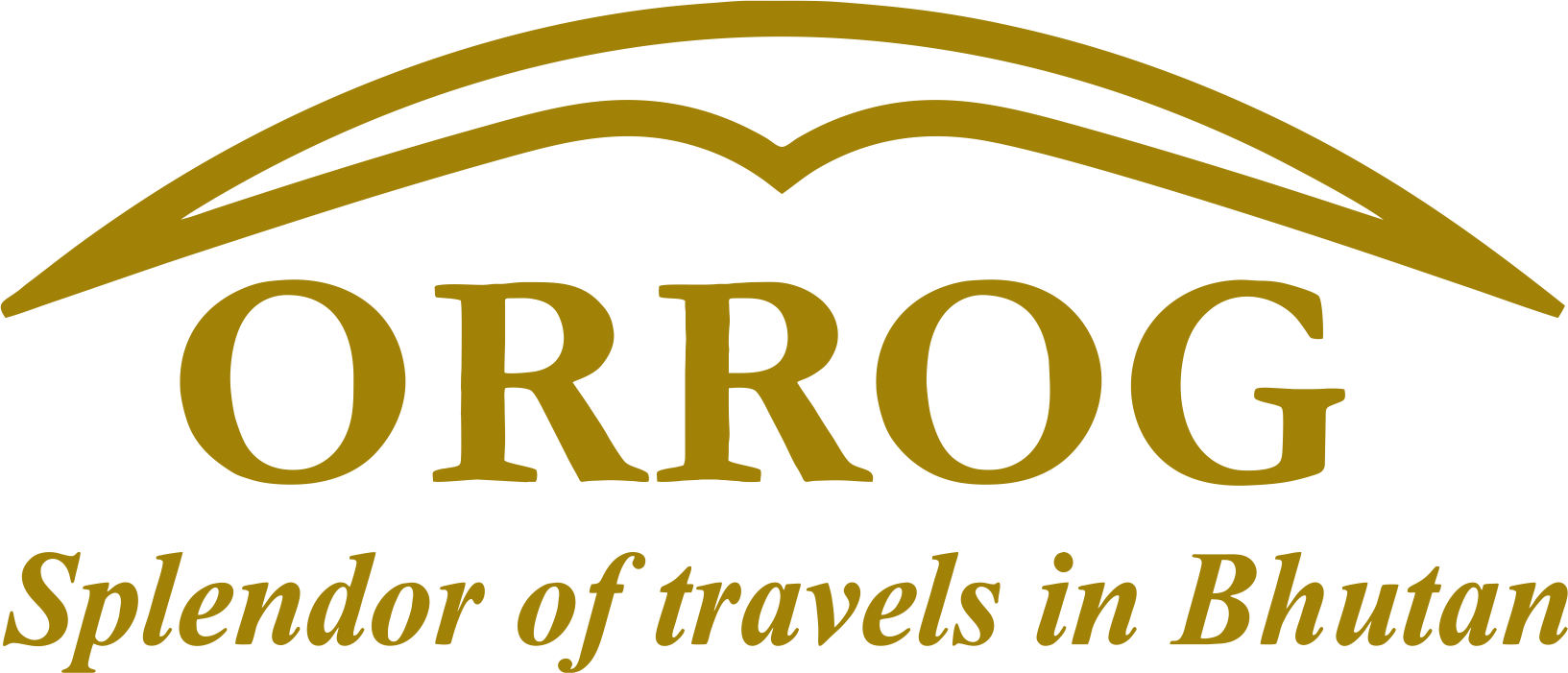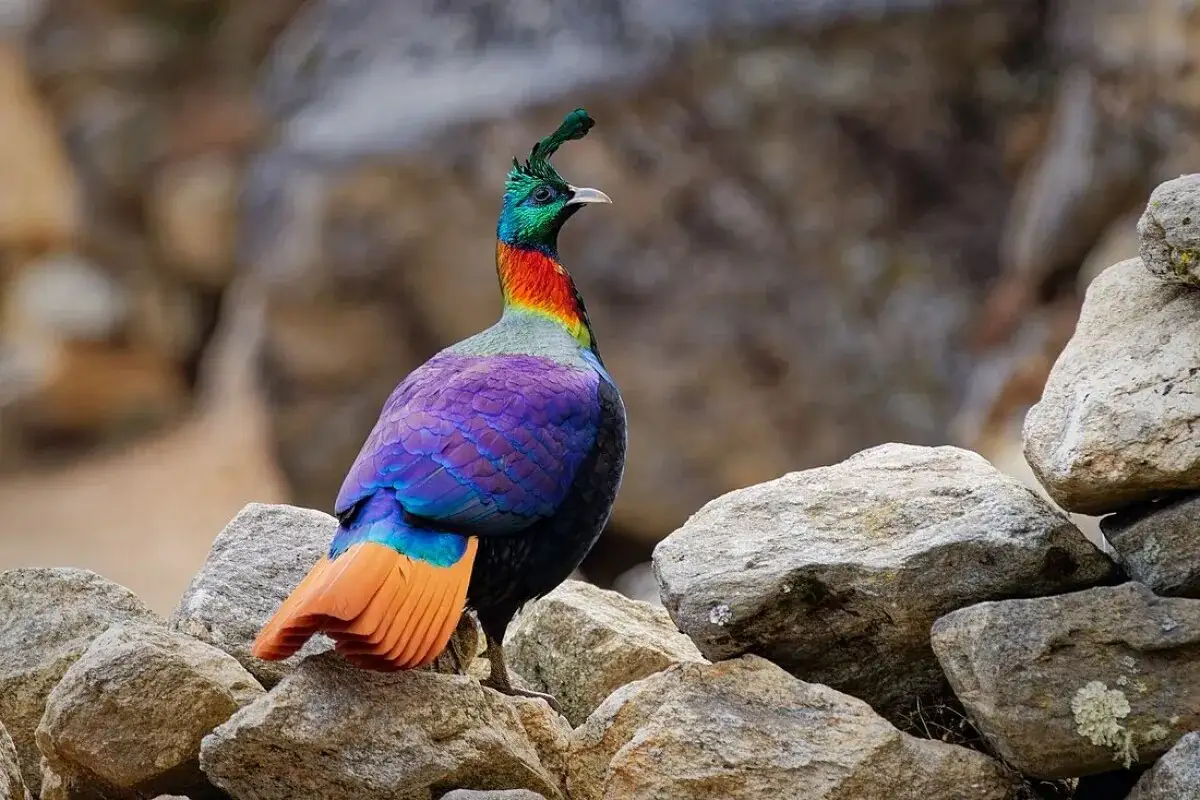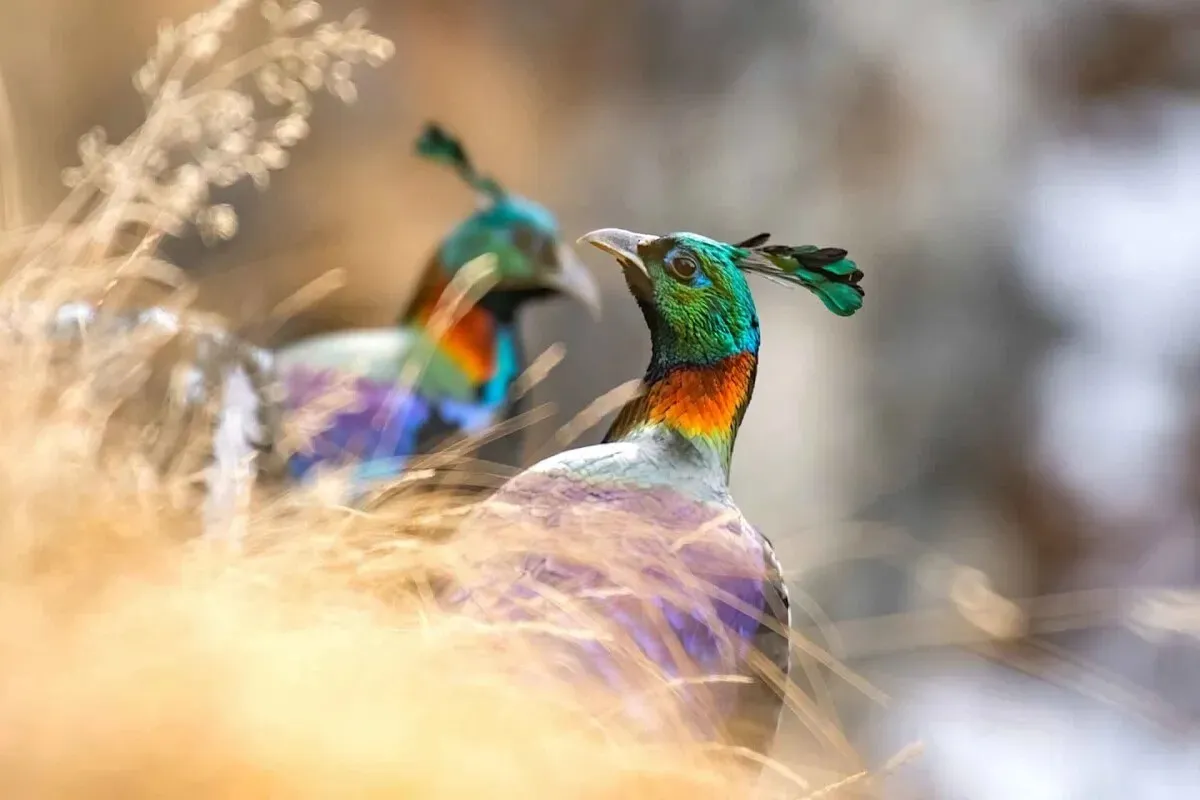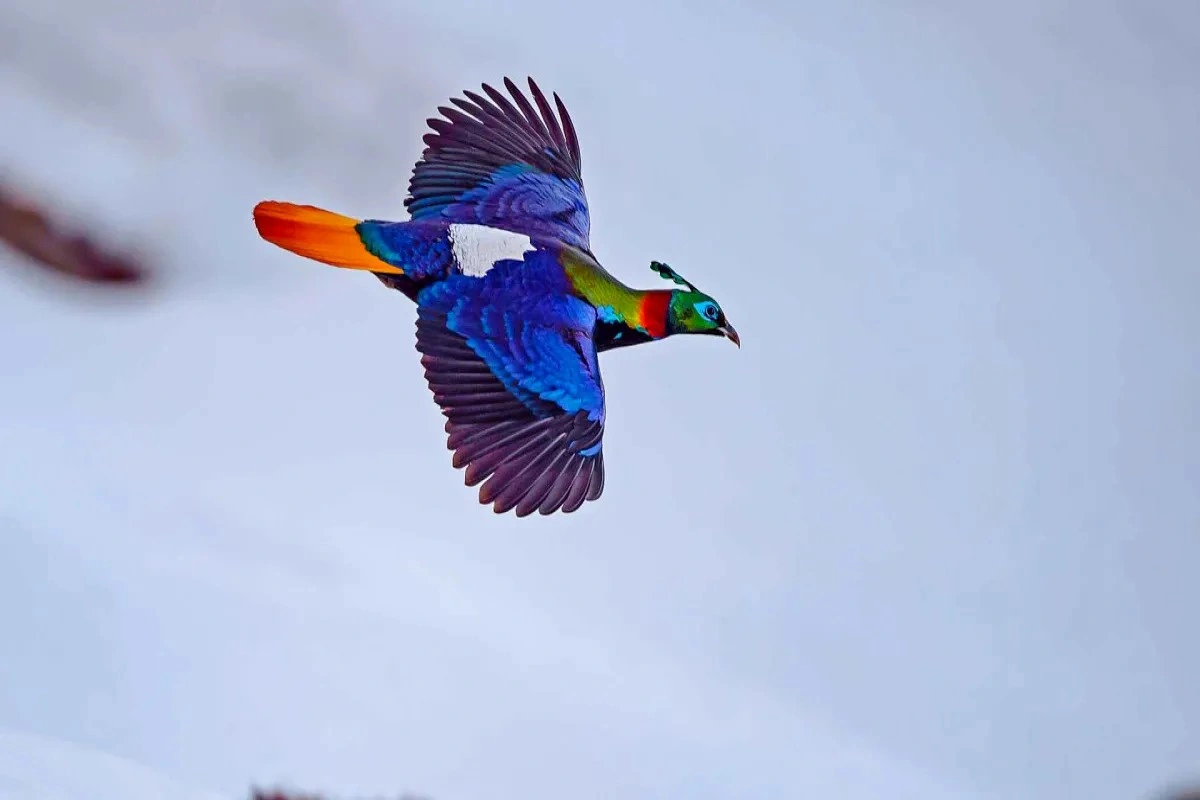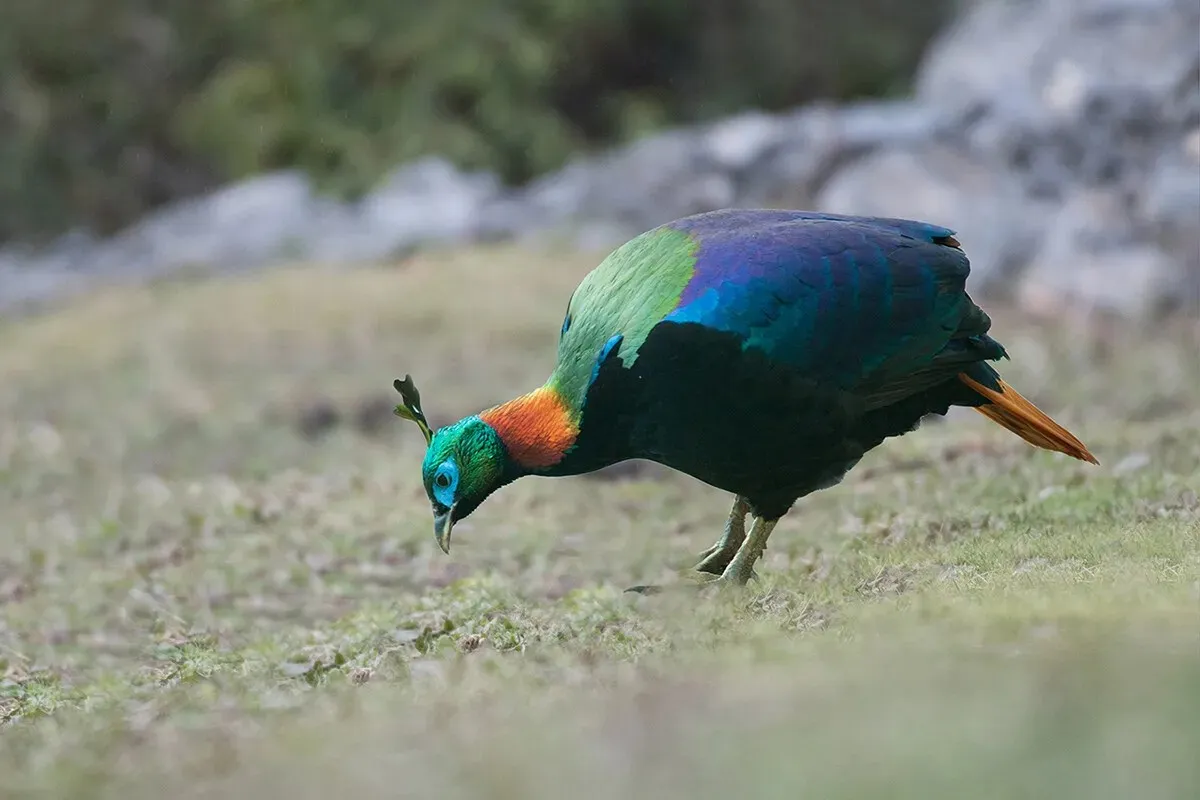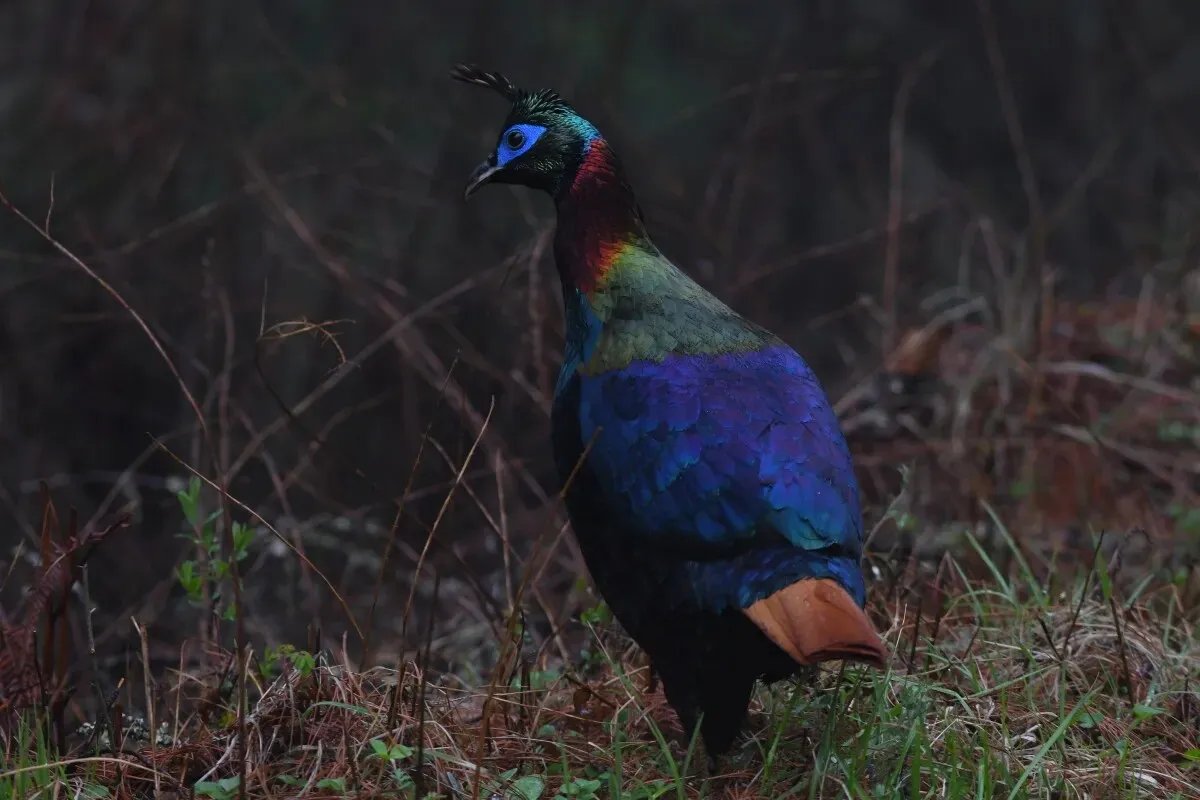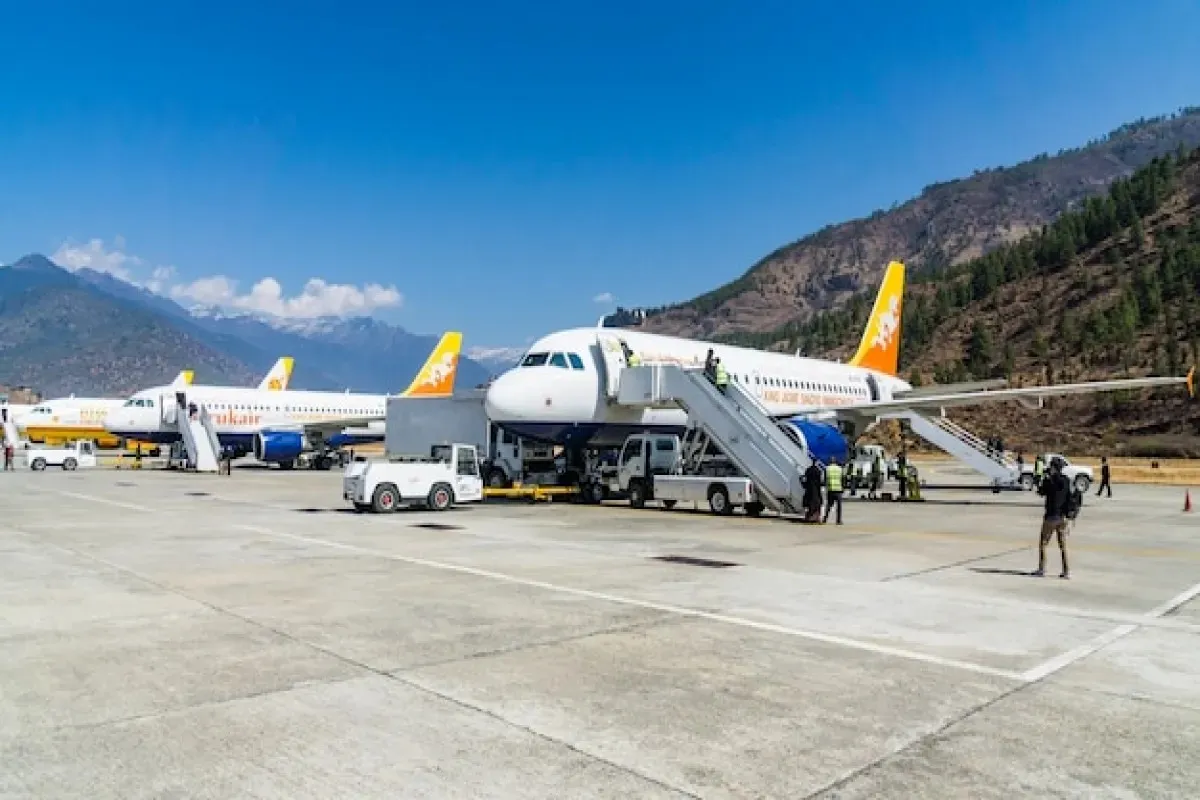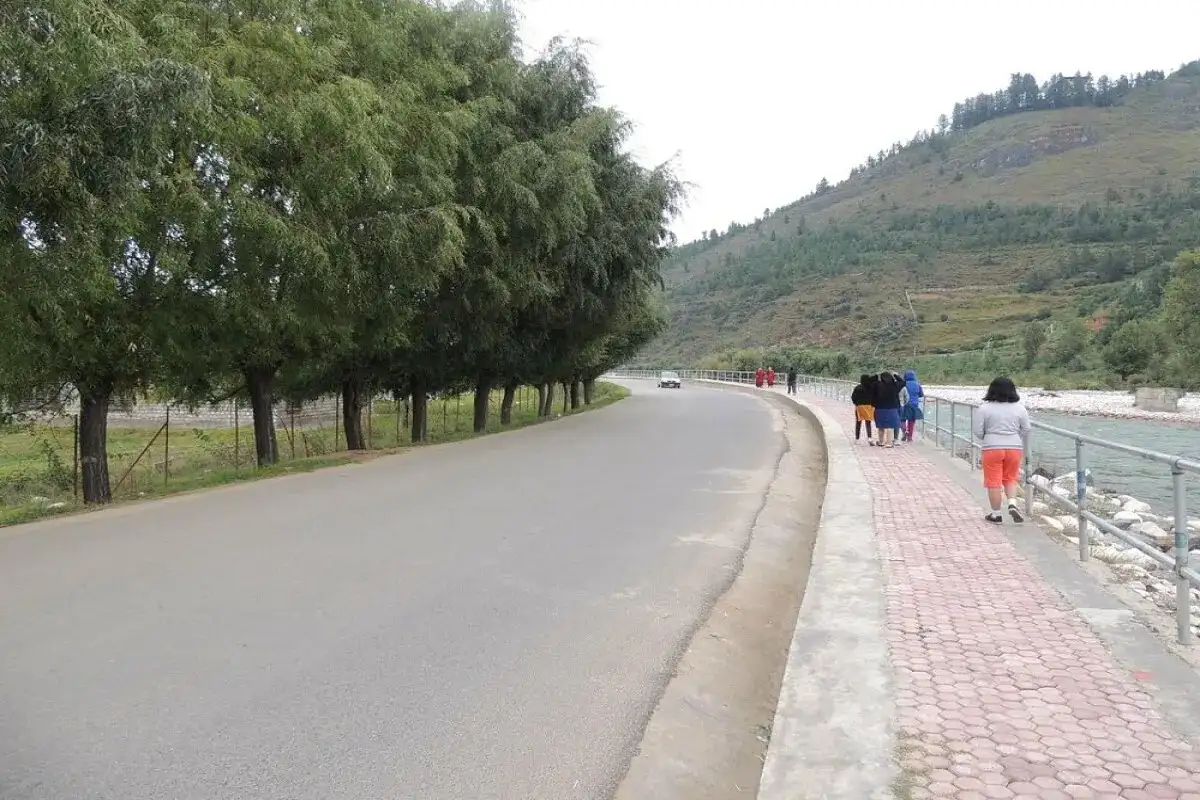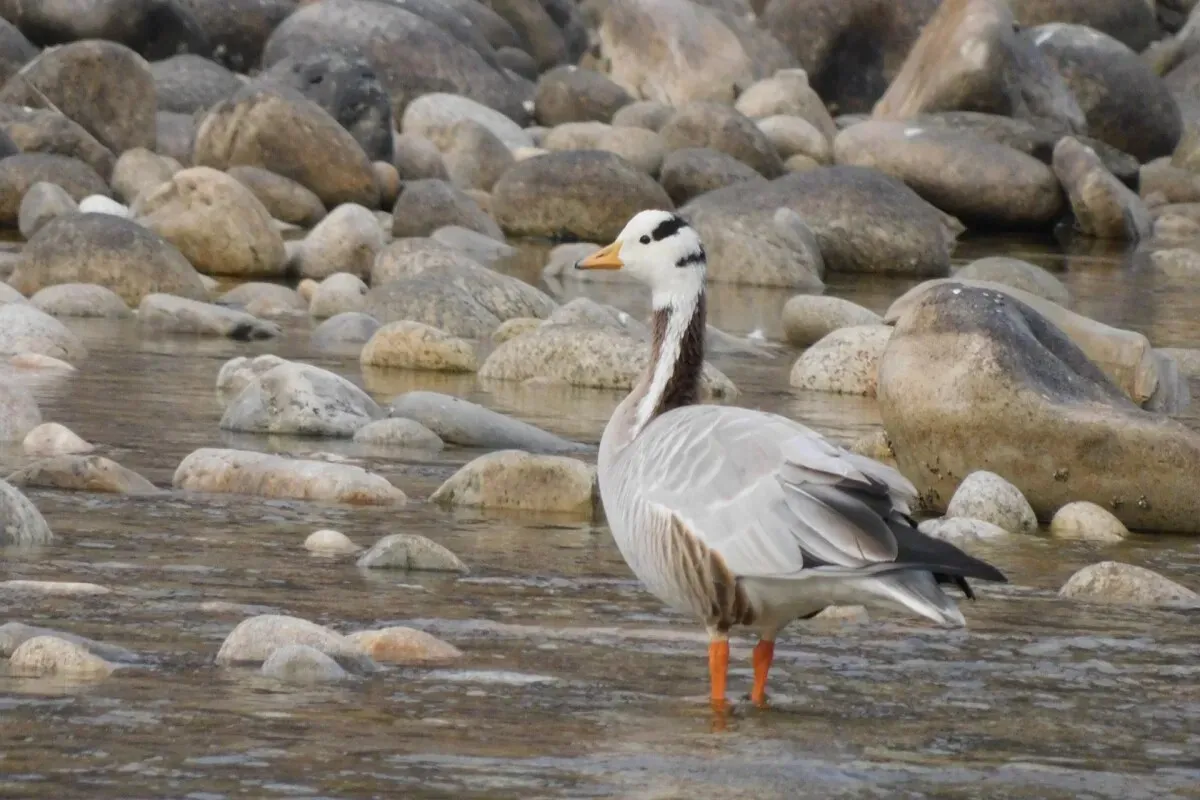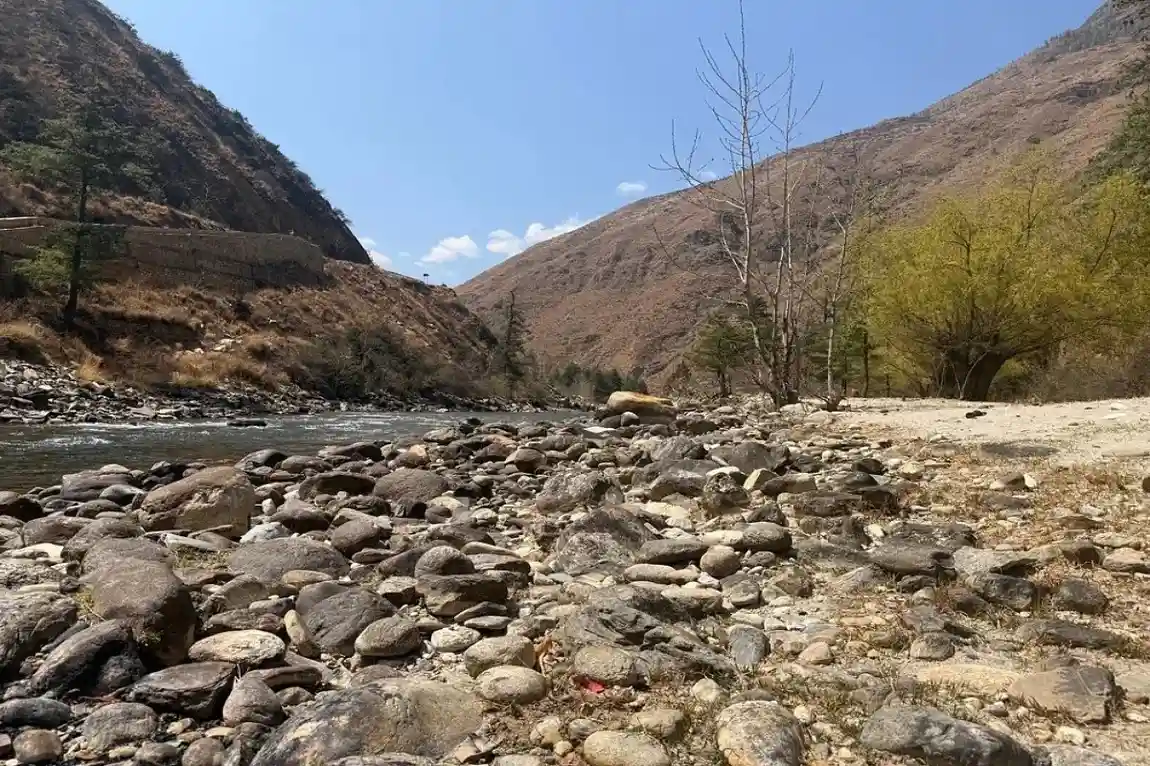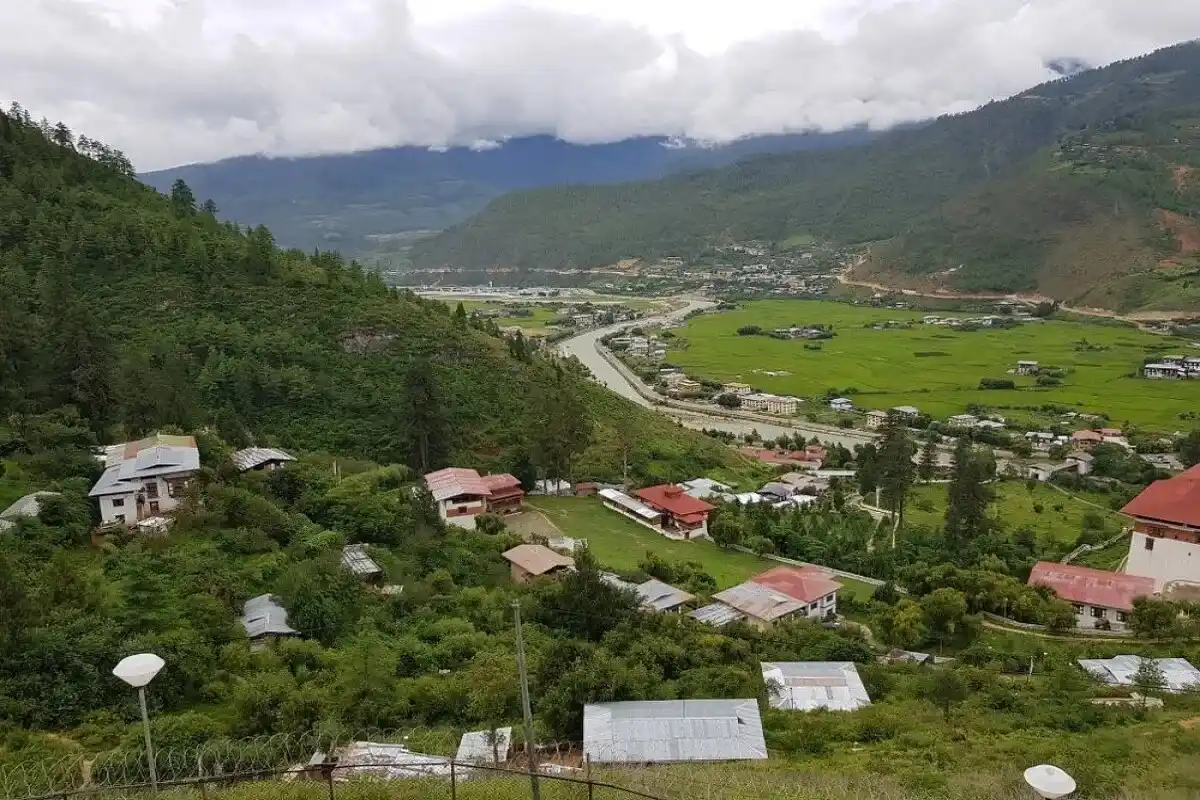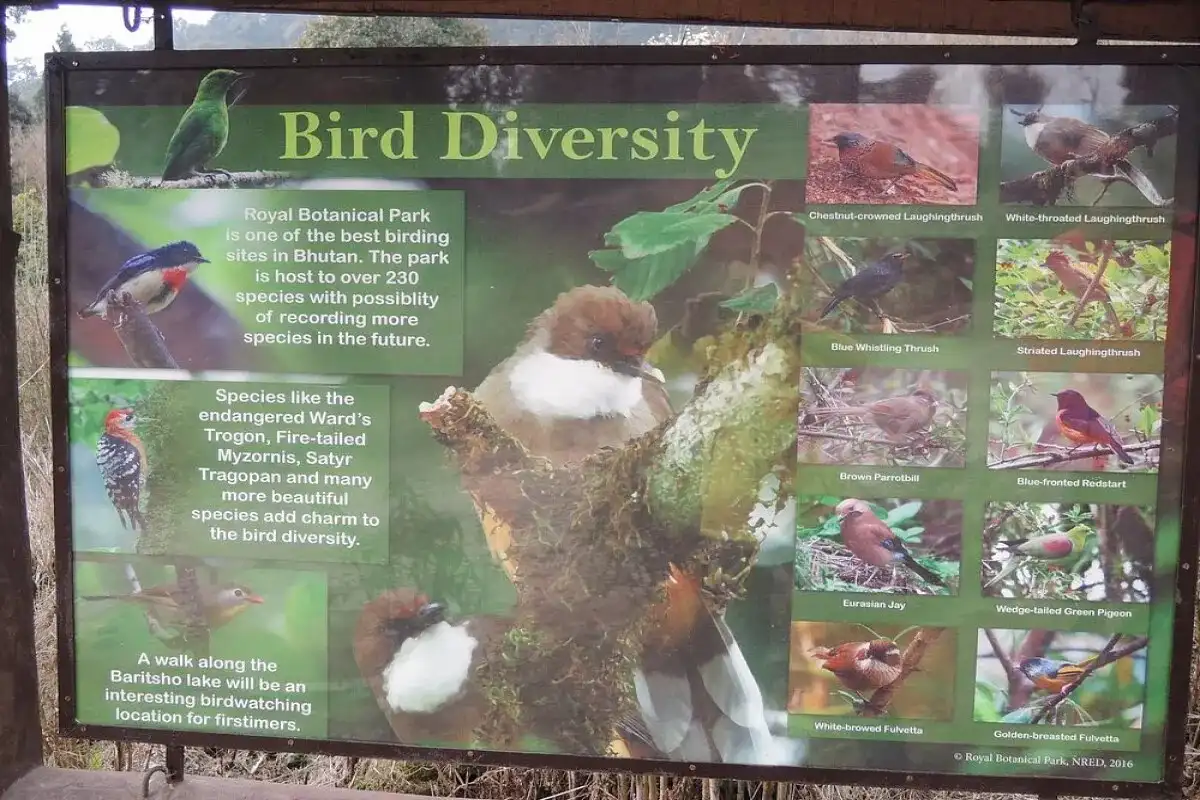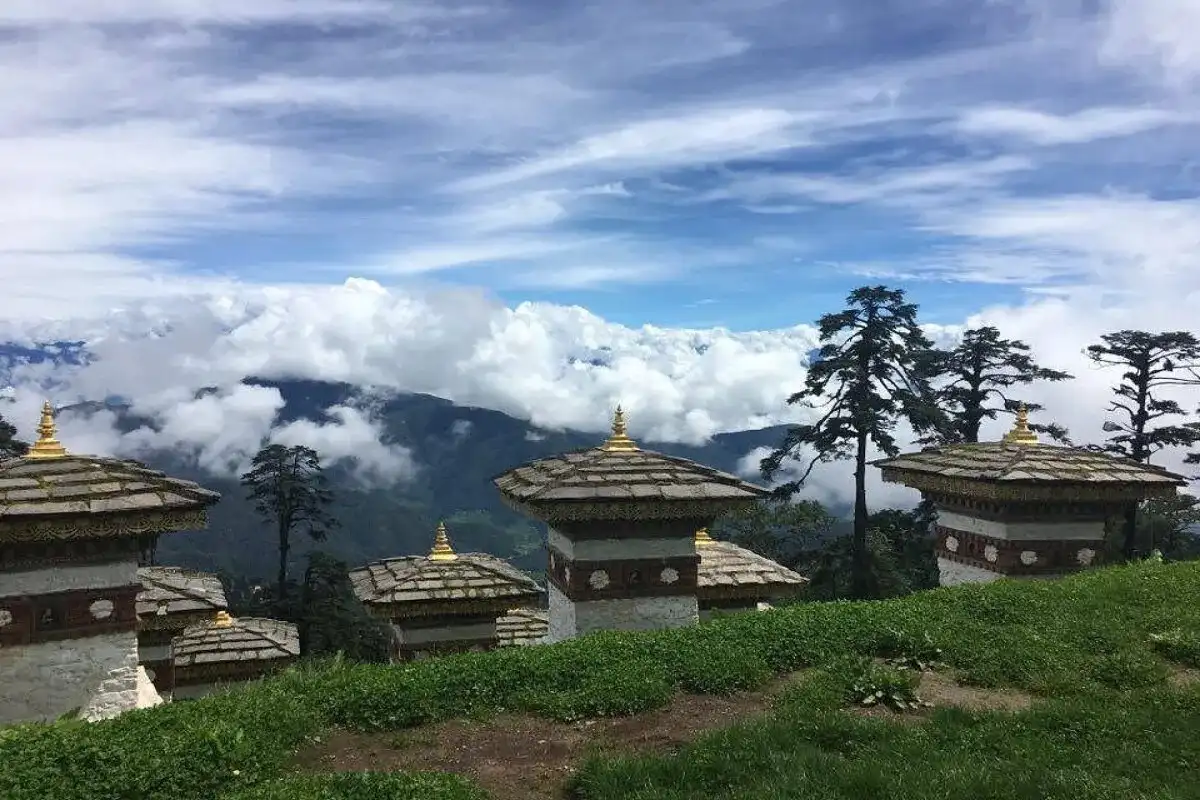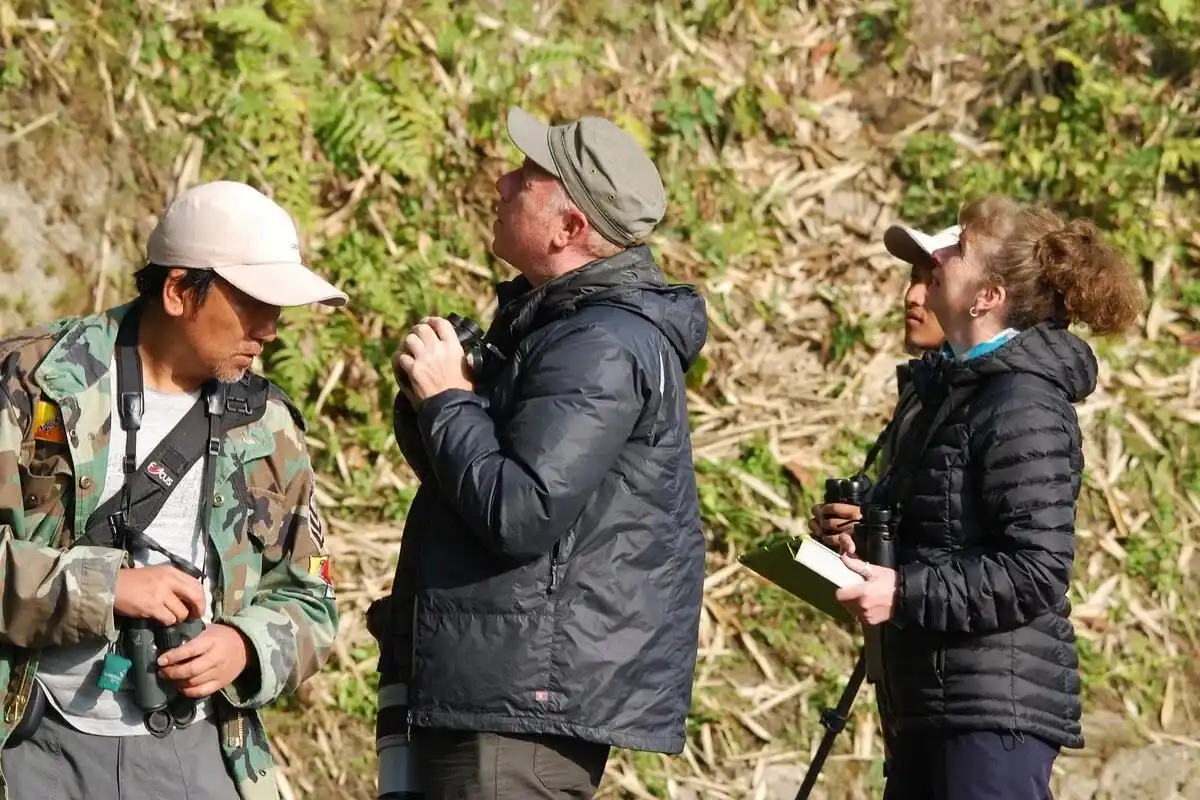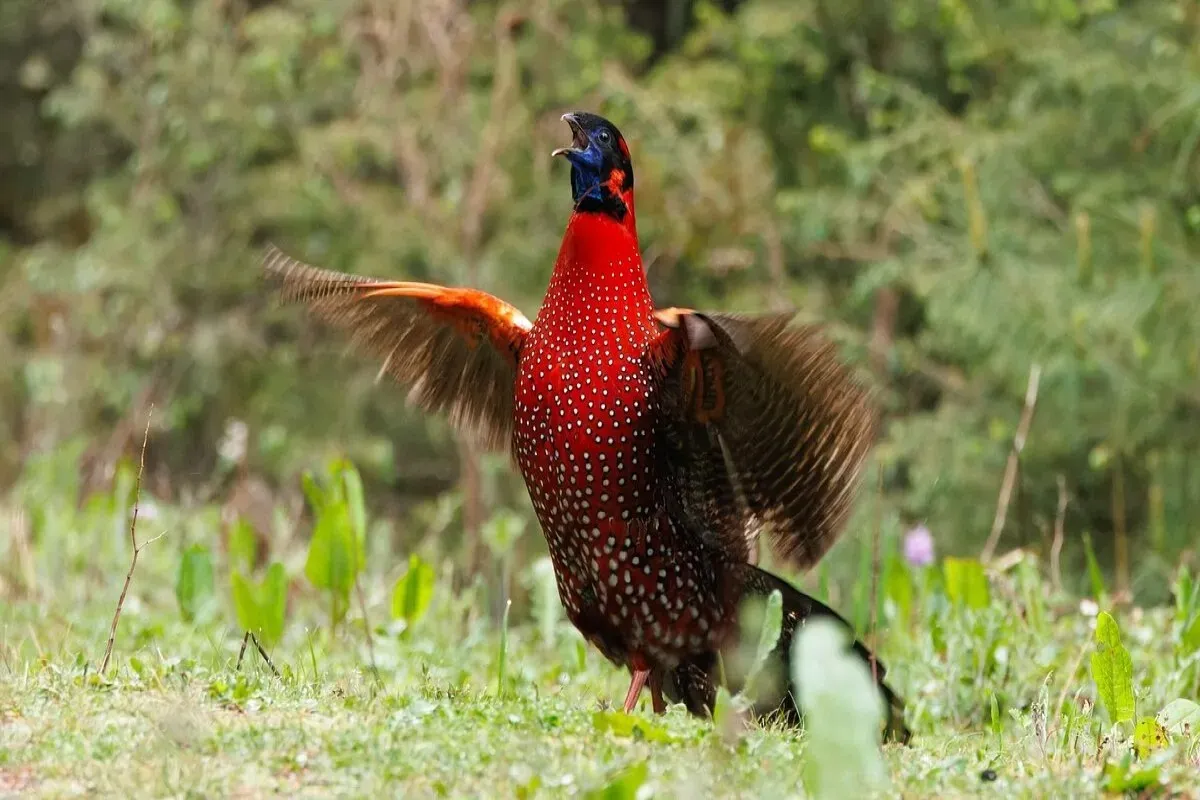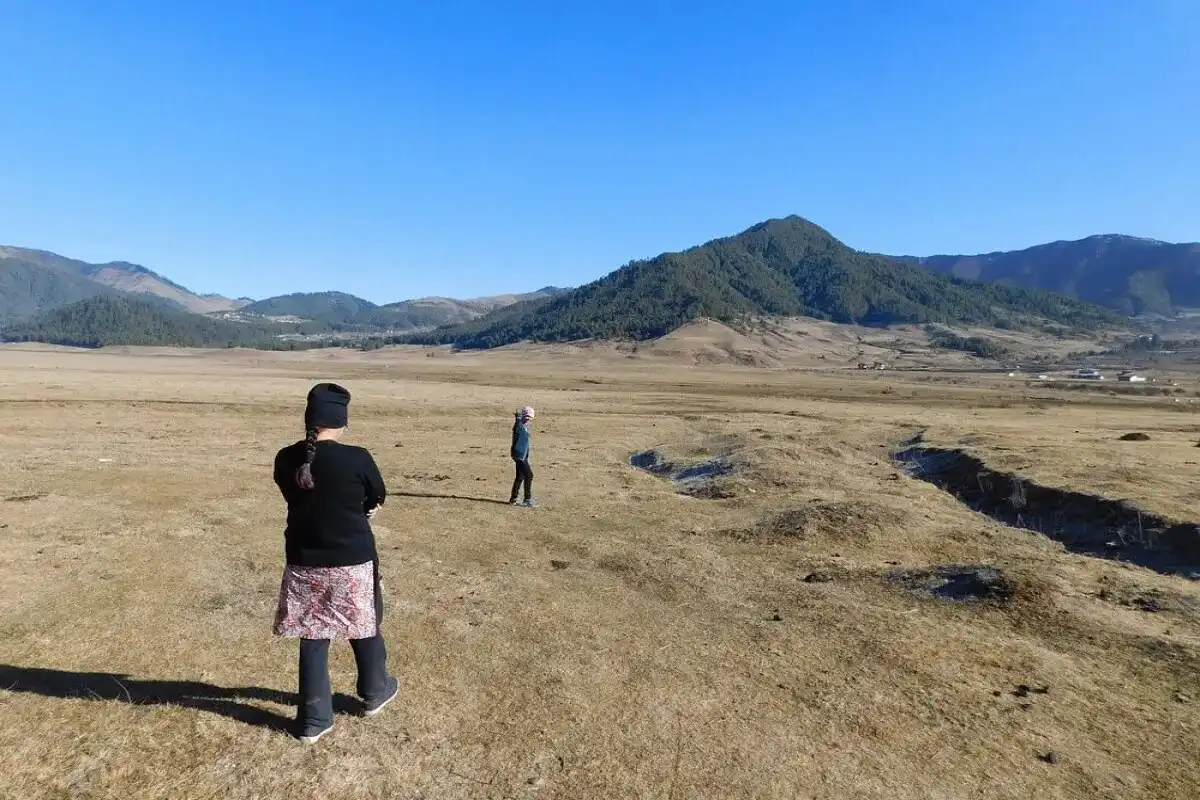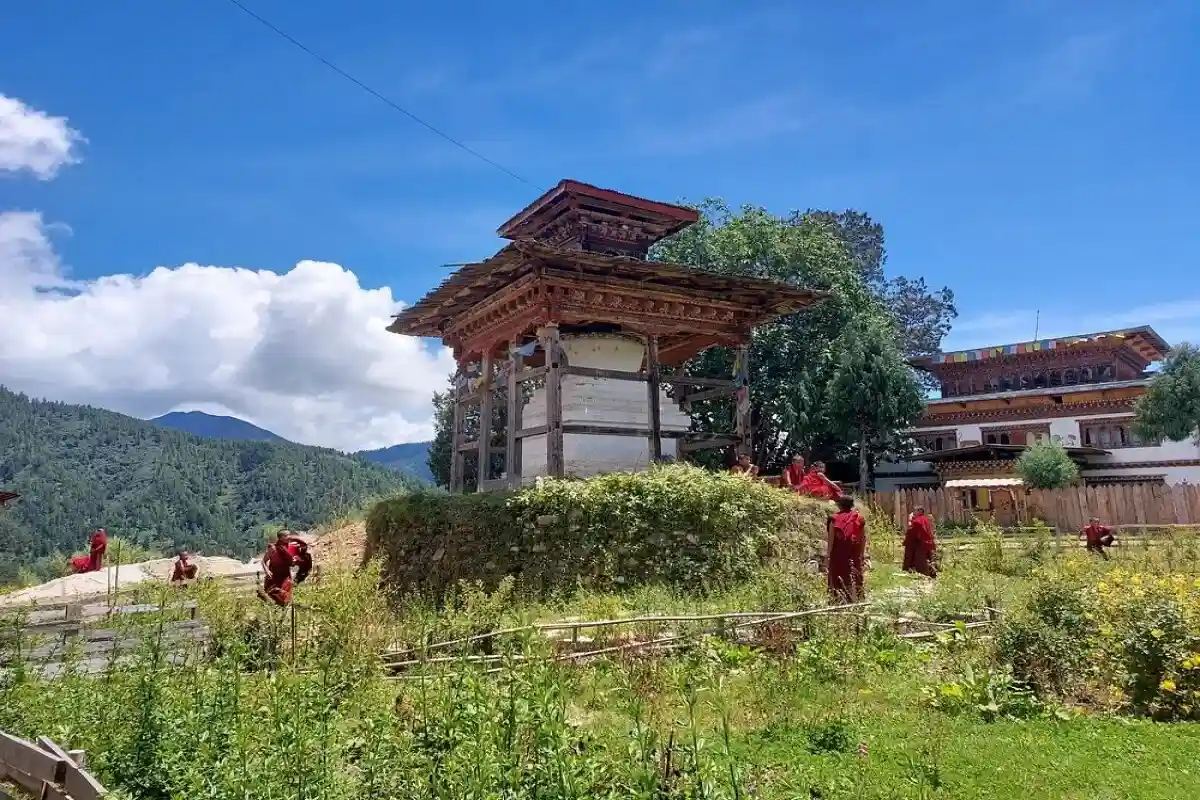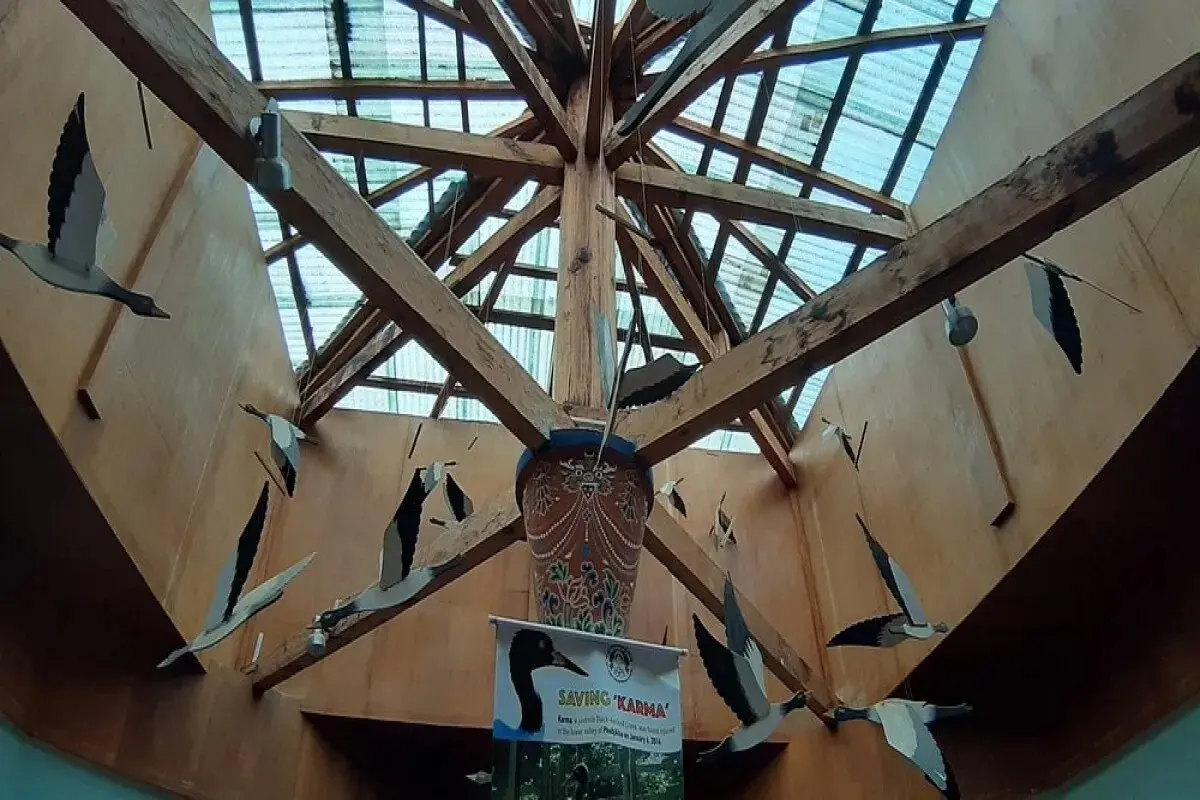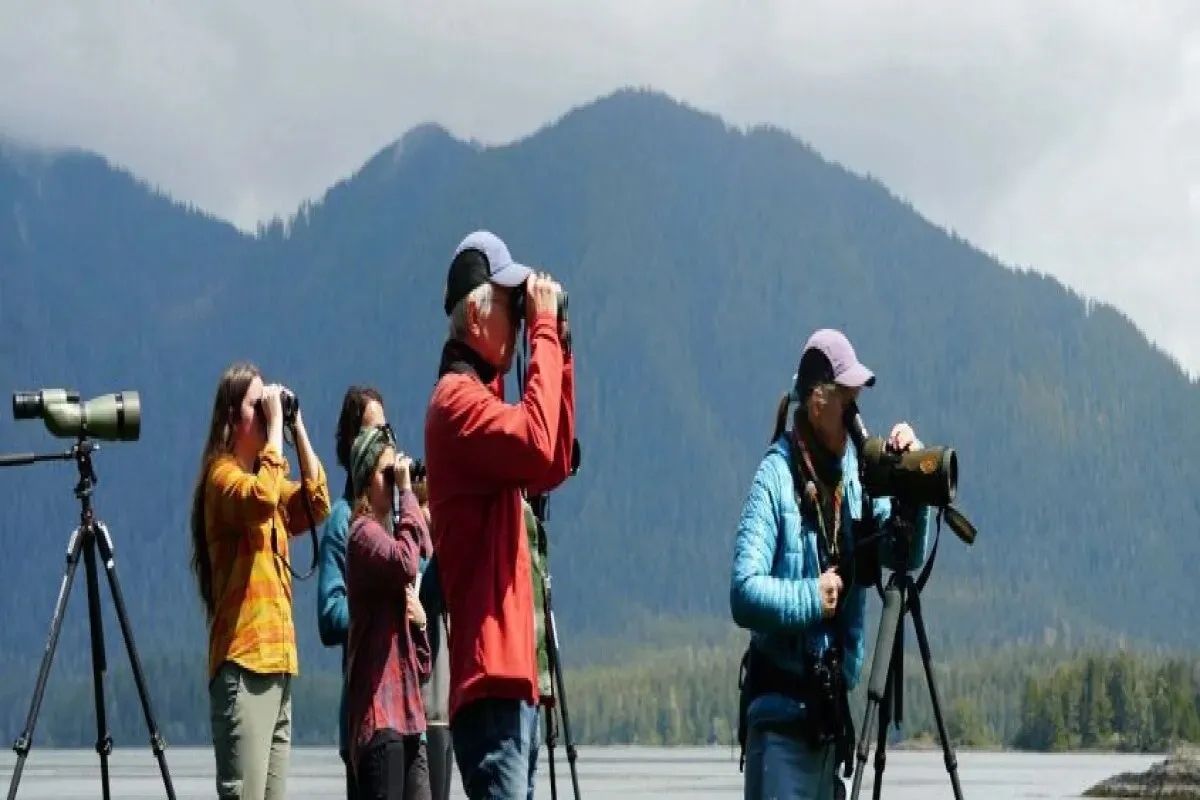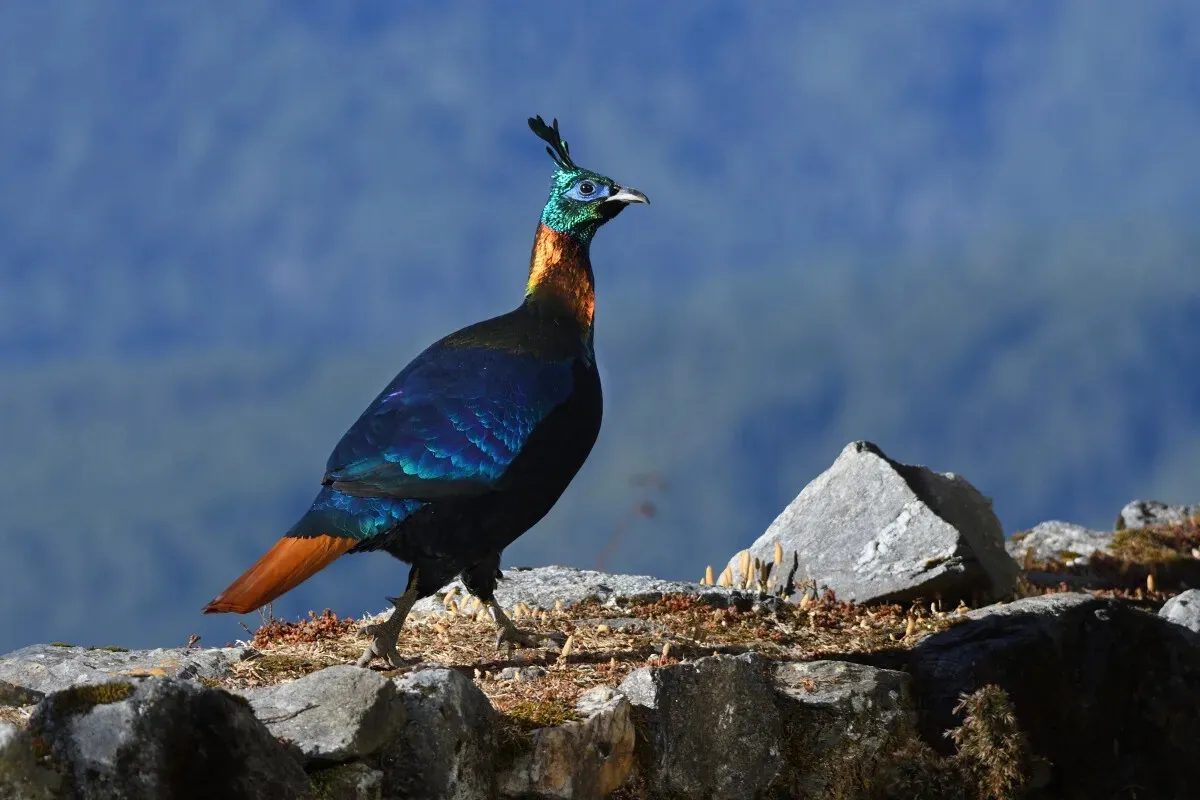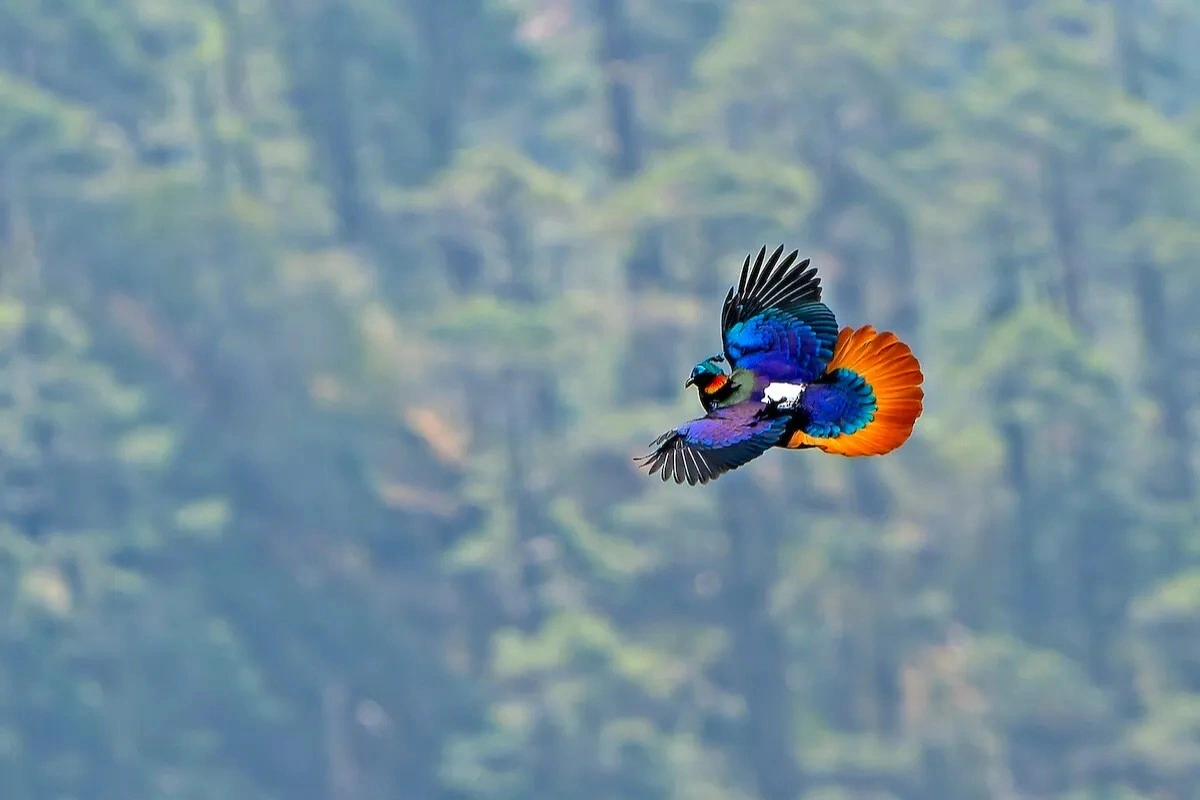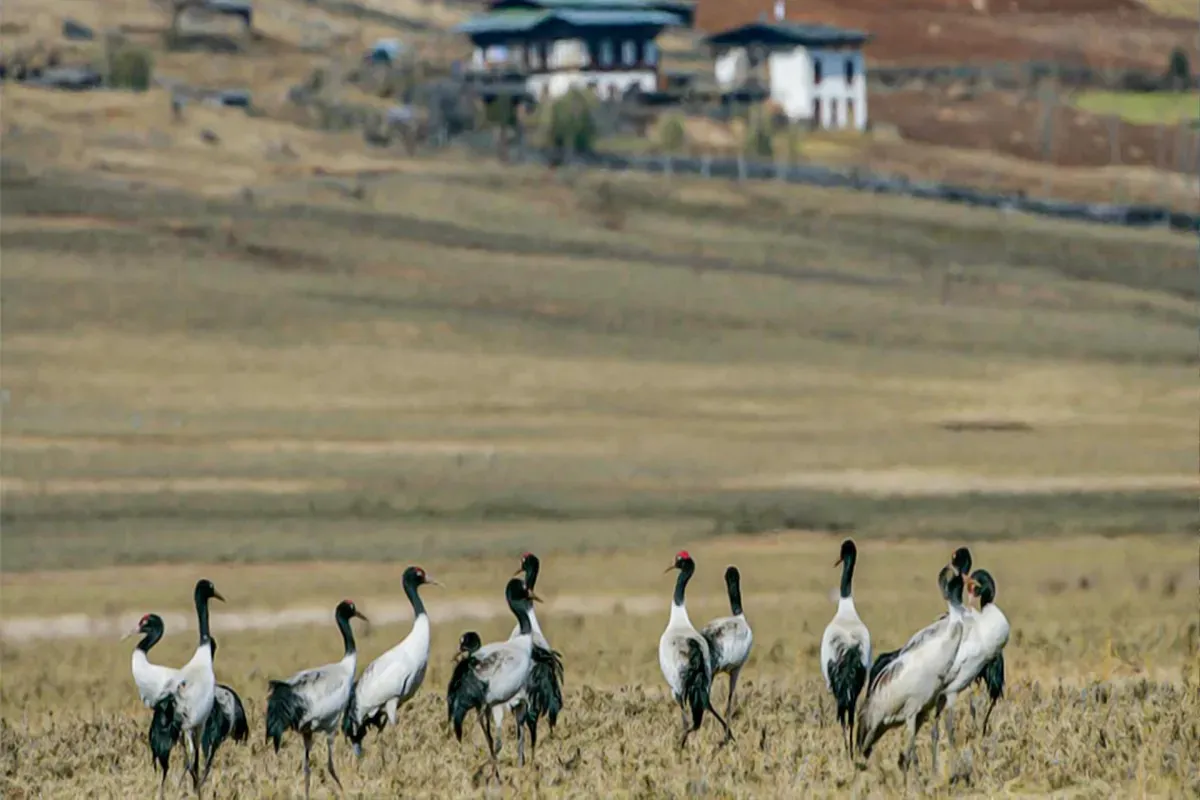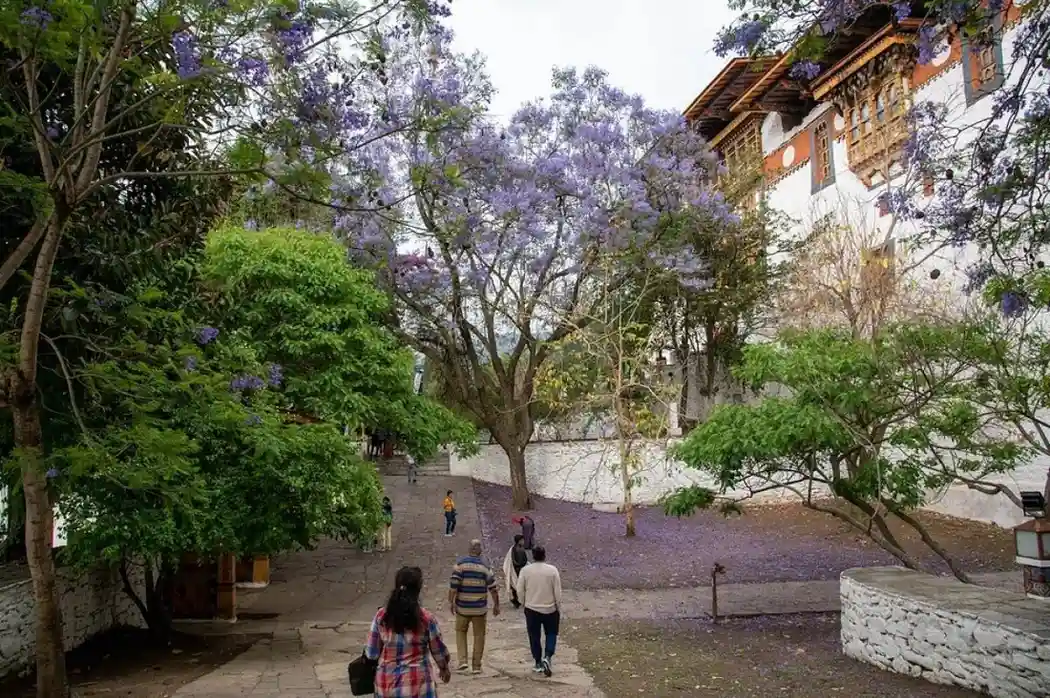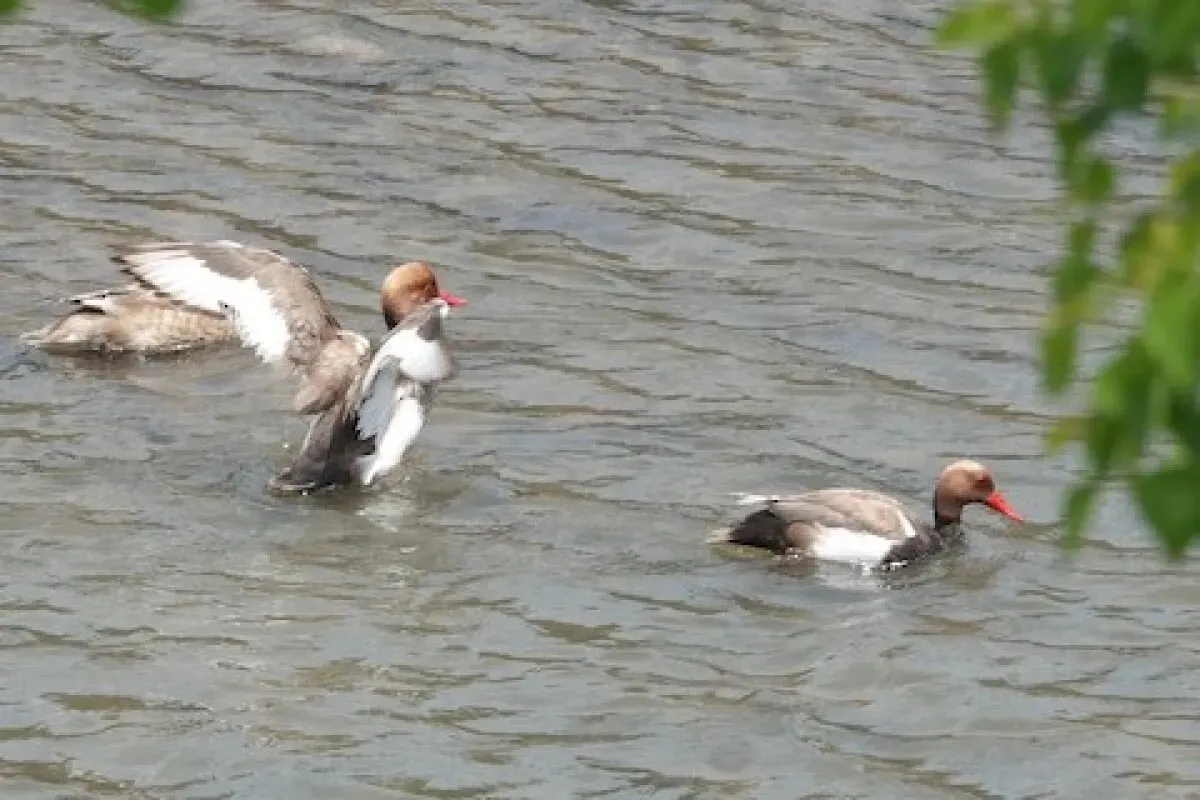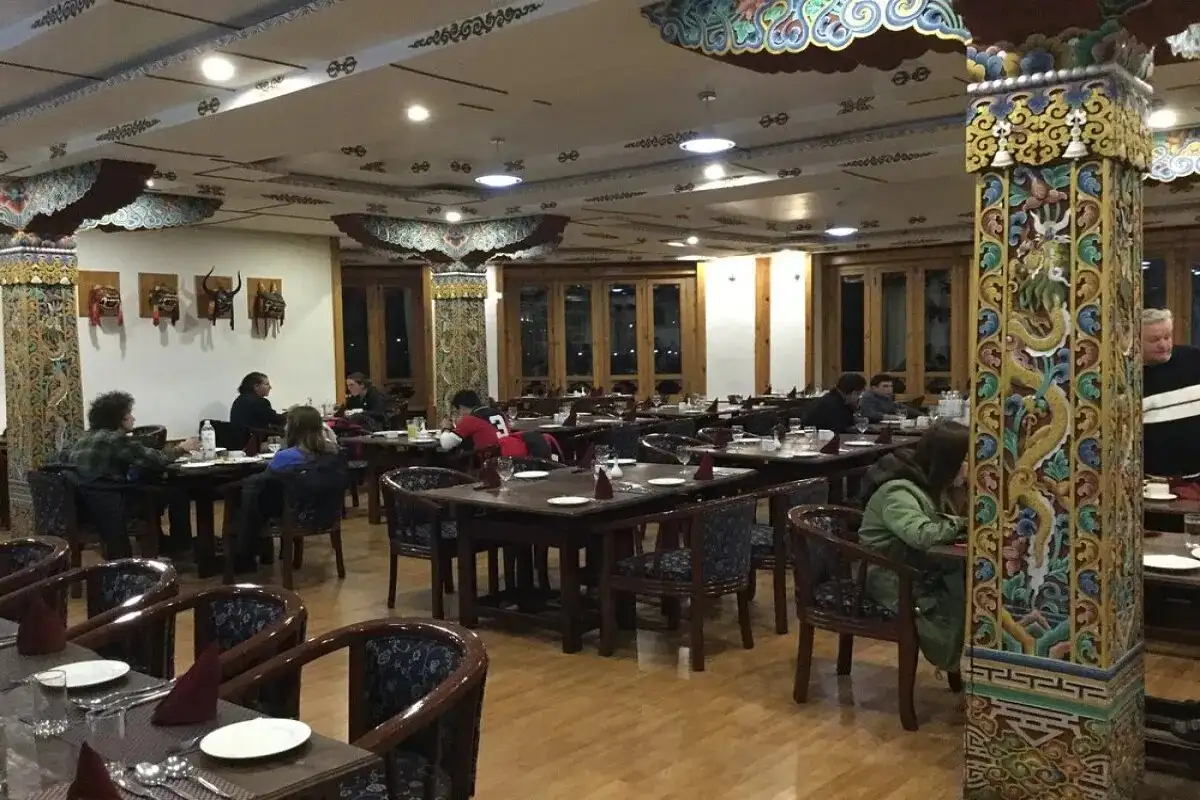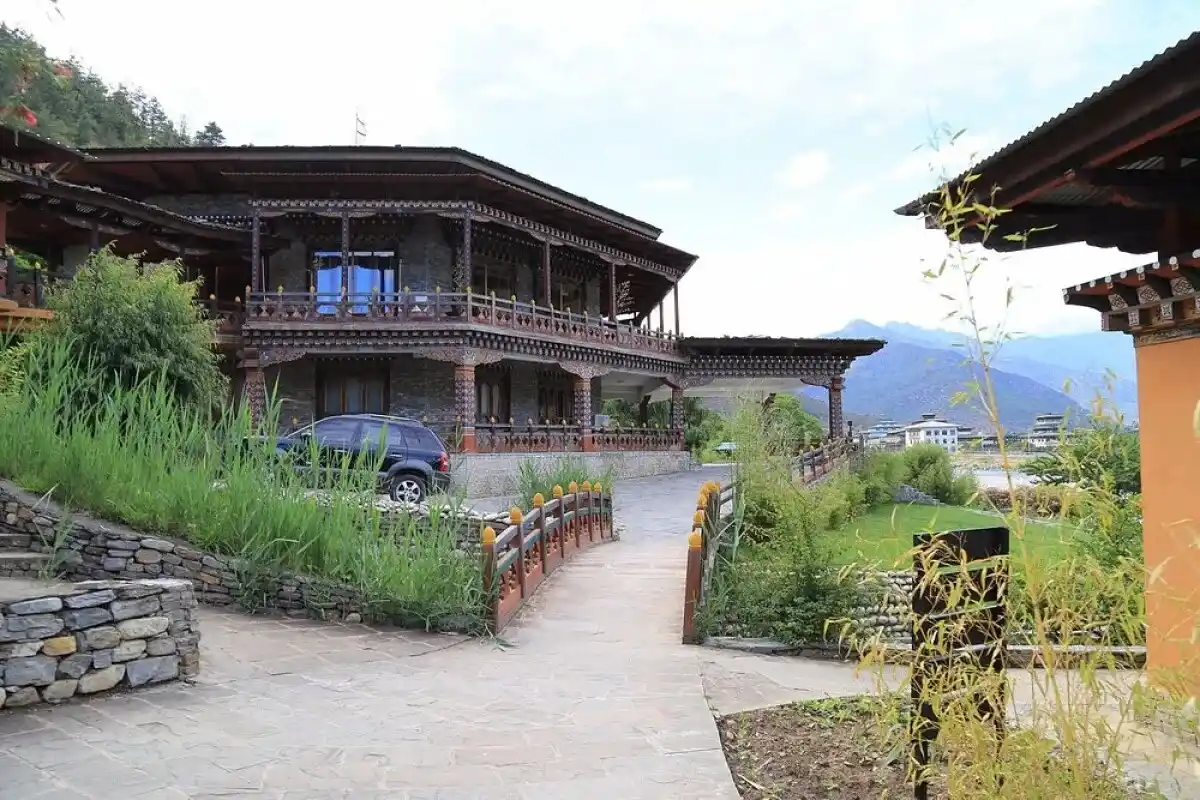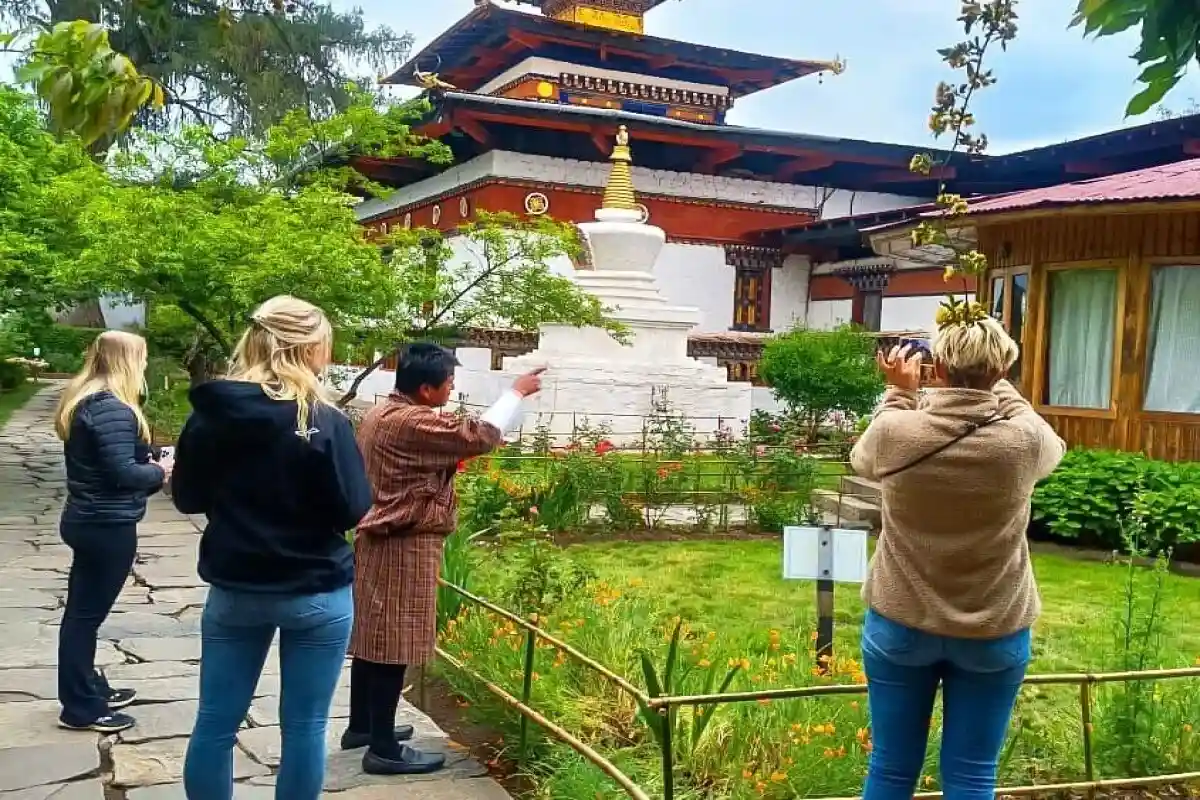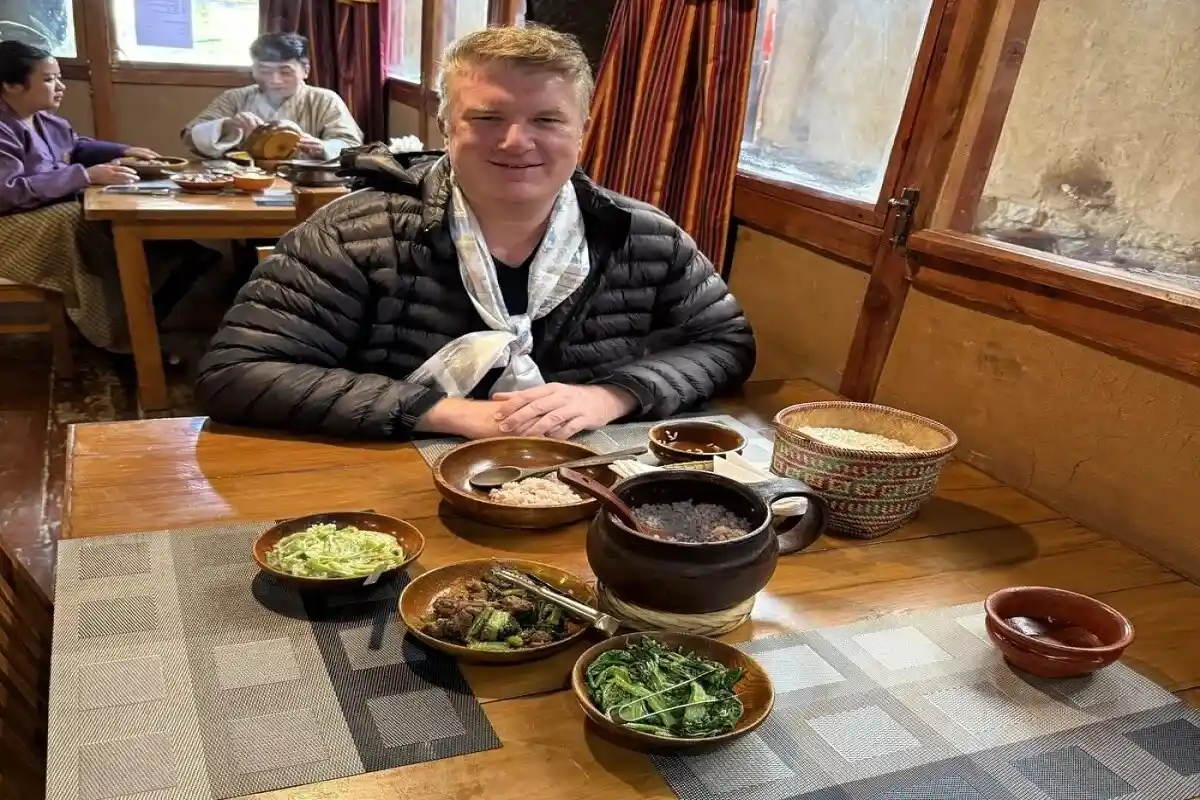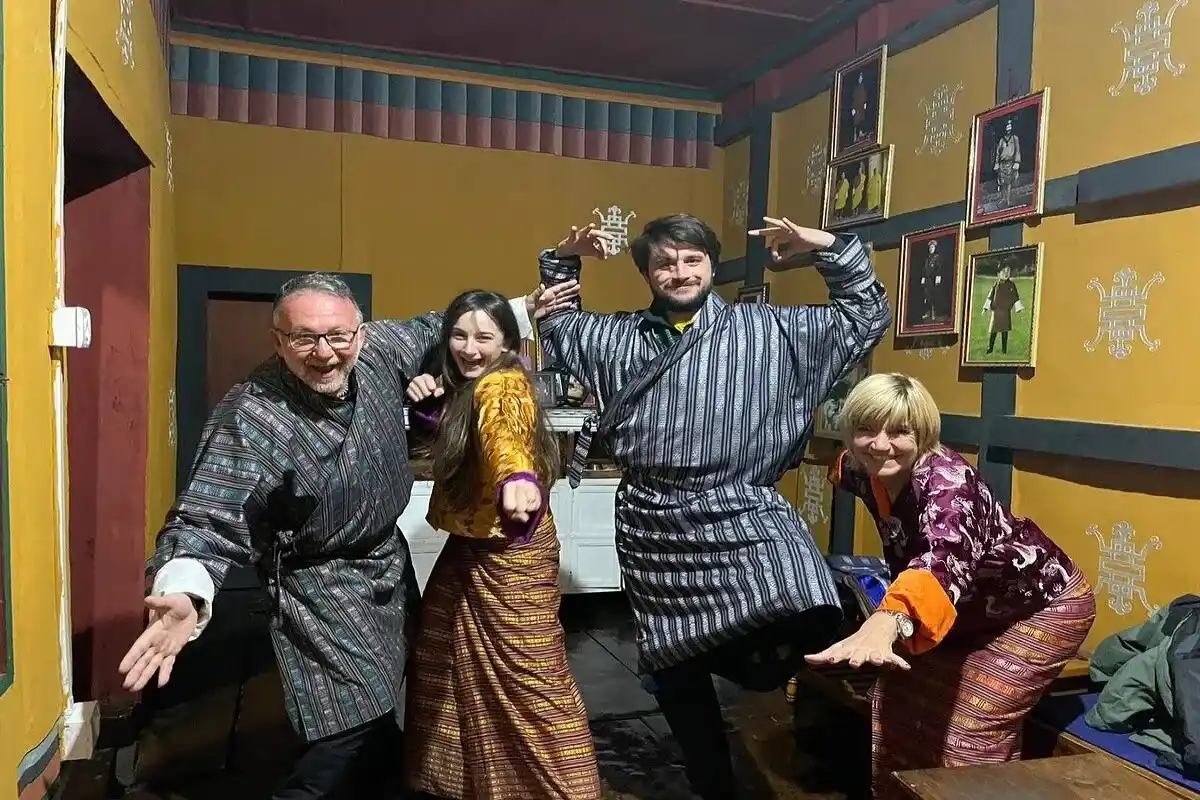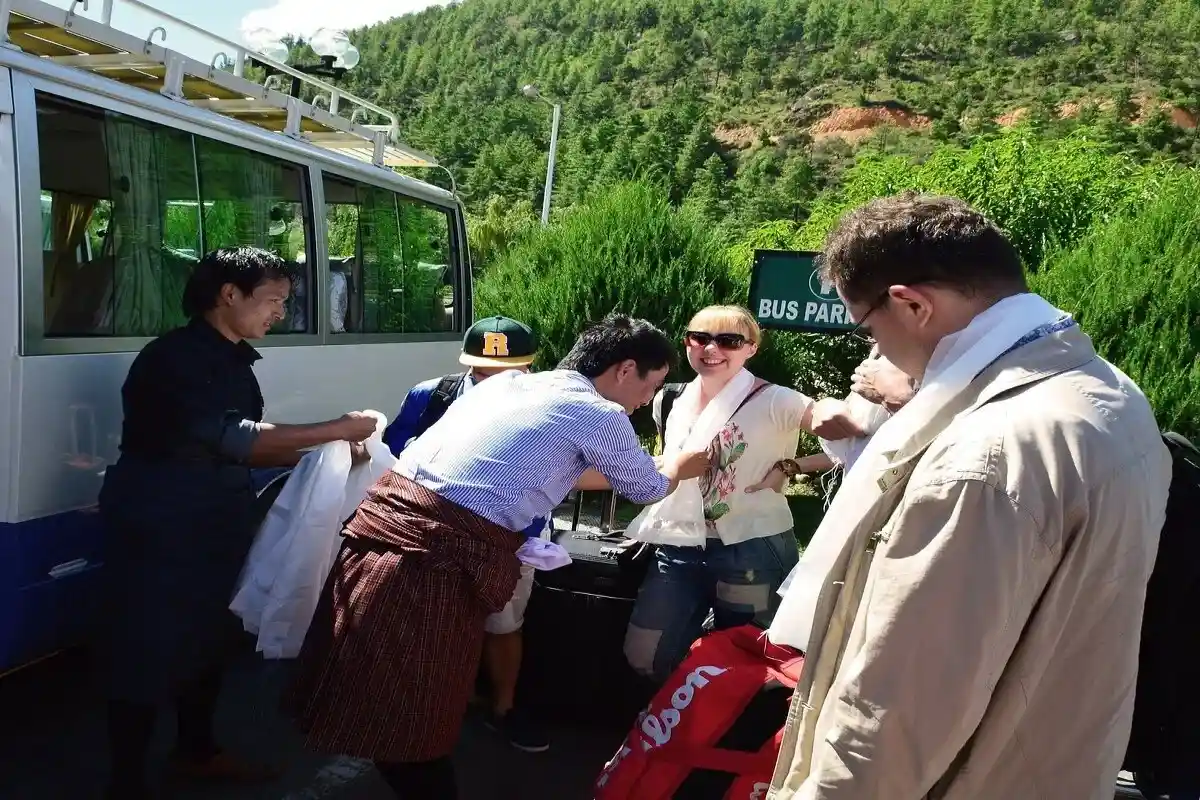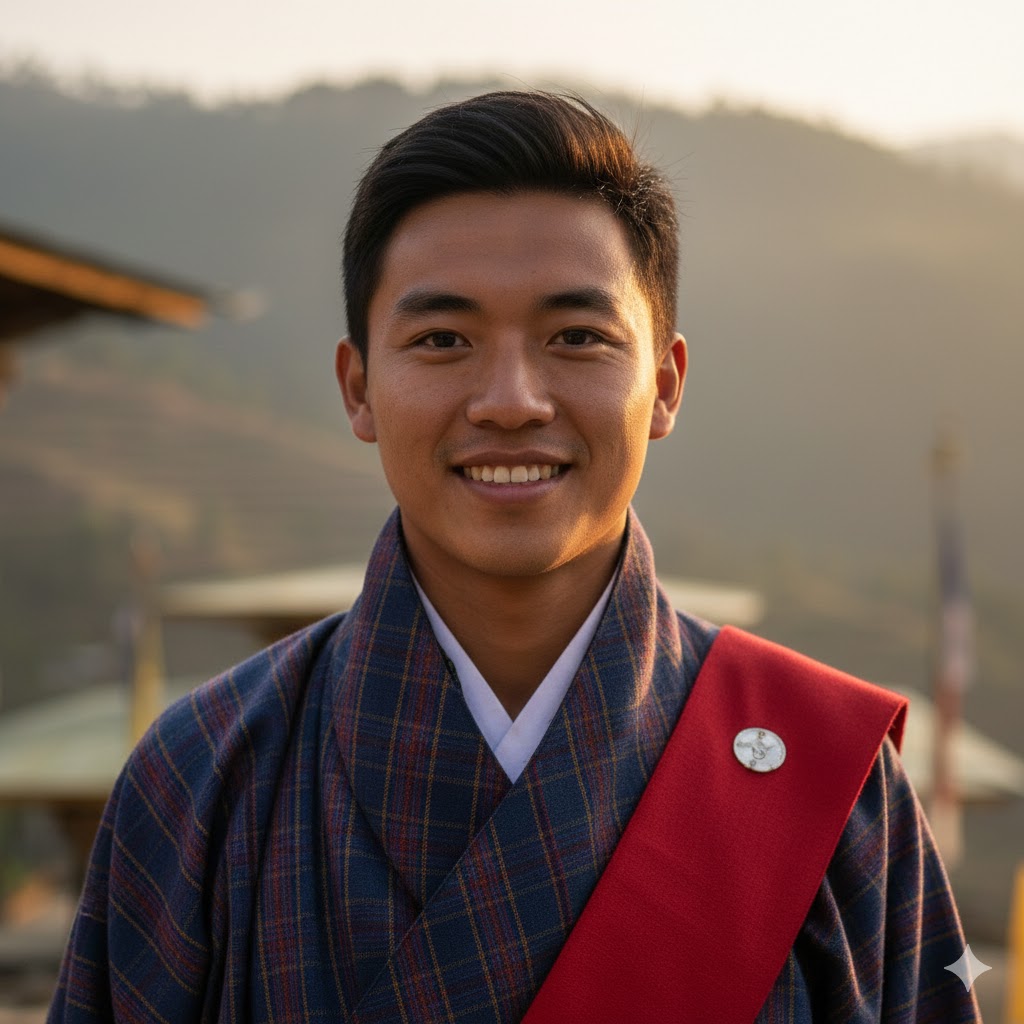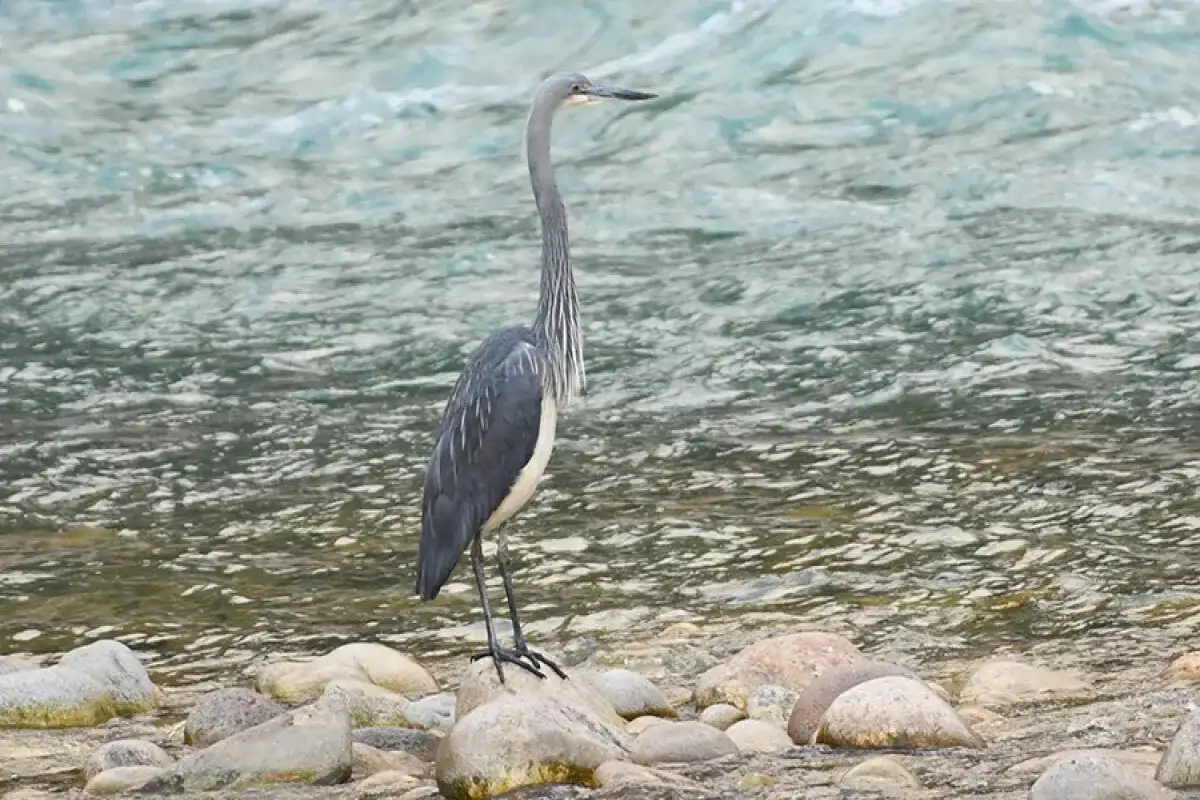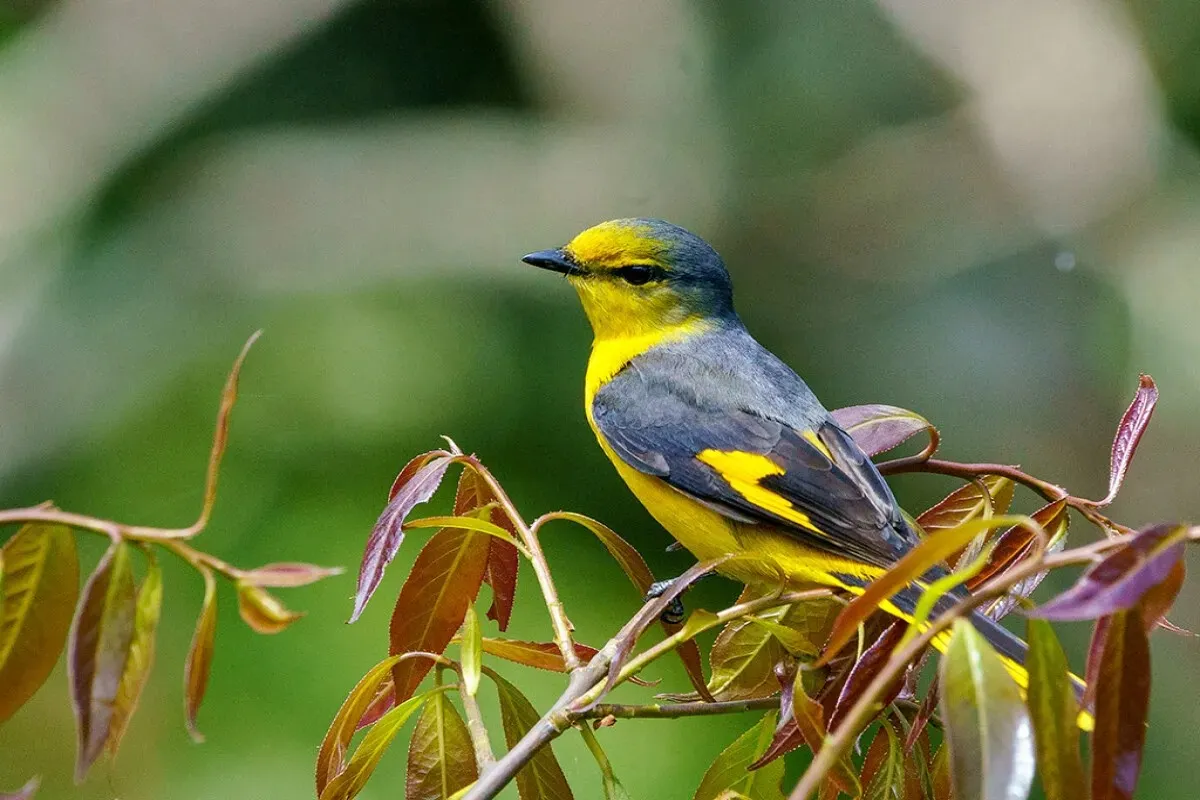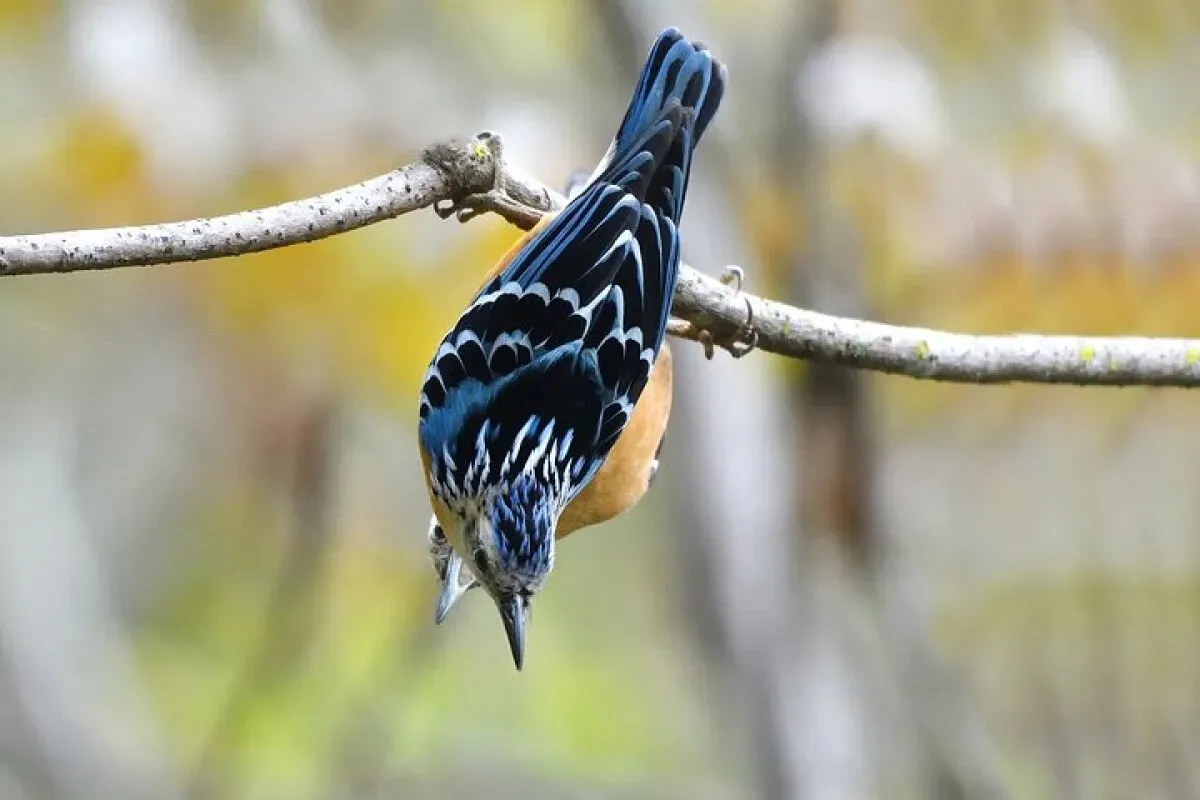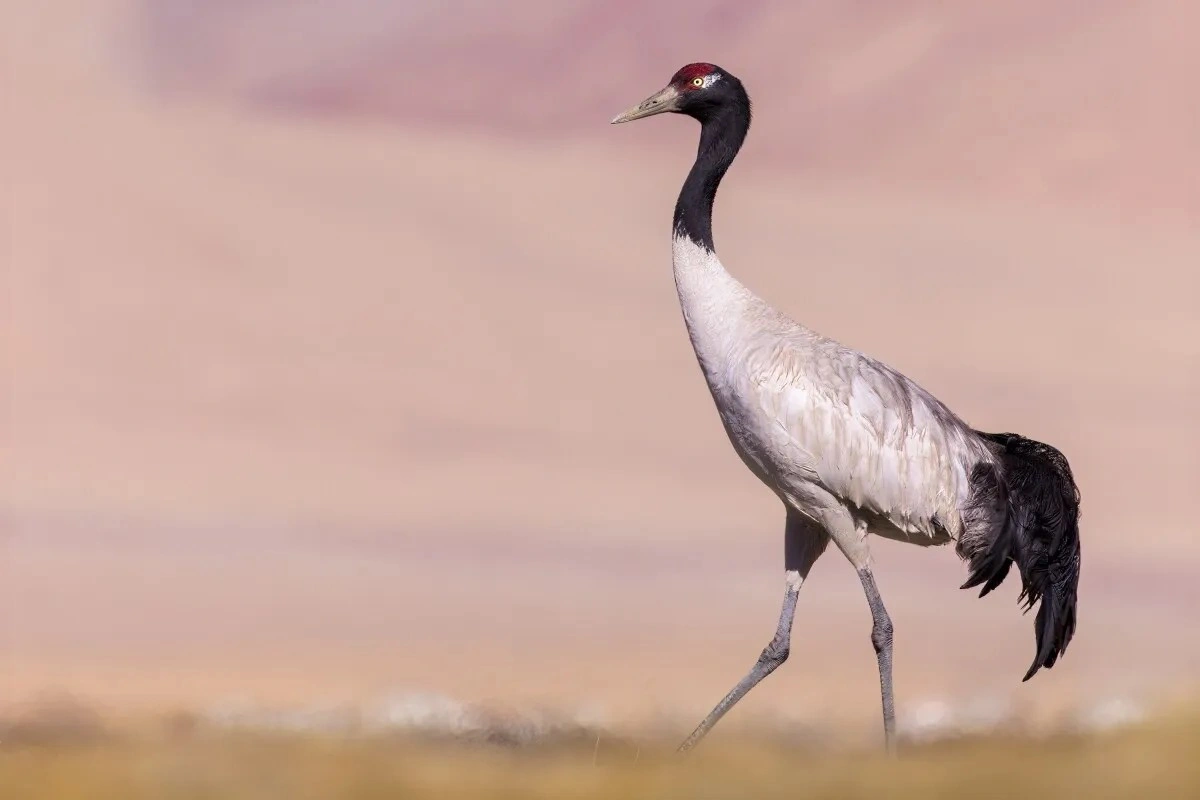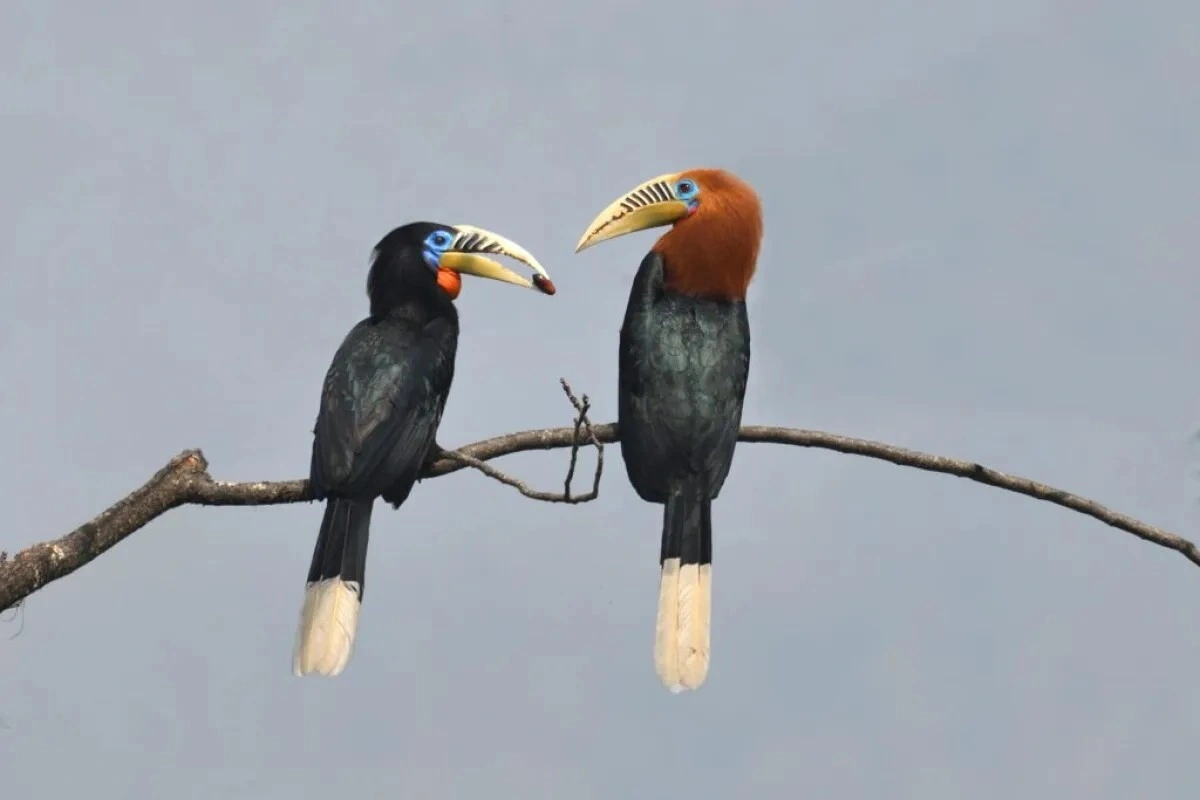Bhutan Himalayan Monal Quest Tour - 8 Days
The Bhutan Himalayan Monal Quest is an 8-day-long tour that includes viewing several different Himalayan birds and especially the rare and endangered Himalayan Monal. This trip offers you with exclusive beauty of nature along with viewing different birds in their natural habitat. This trip is a treasure for bird watchers, nature lovers, and photographers. The places you visit are so calm and peaceful, which will make your whole 8-day journey very worthwhile.
Highlights
- Spot the Himalayan Monal in its Natural Habitat Along Alpine Trails
- Explore bird-rich forests in Paro, Thimphu, and Phobjikha.
- Guided birdwatching with local experts and naturalists.
- Chance to see Satyr Tragopan, Blood Pheasant, and other Himalayan species.
Trip Overview
The Himalayan Monal is one of the most beautiful and colorful birds found in the high mountains of Bhutan. It has bright coloured feathers, it shines in sunlight, and looks very pretty. Monal are found in quiet forests and the high Himalayas. In this trip, you will travel through some of the most peaceful and natural parts of Bhutan to look for the Monal and many other birds. You will be assisted by our local bird guides, who are also the locals of Bhutan. They will help you see these amazing birds and tell you interesting facts about them. You will learn about the plants, animals, and the way people live in the mountains with gracefulness and joy. Bhutan is known for caring deeply about nature, and you will see how the country protects its forests and wildlife on this trip.
Explore the beauty of the Himalayan Monal
The Himalayan Monal is found in the eastern Himalayas of Bhutan. It is really a graceful bird covered with different colours. Its feathers are full of colours such as blue, violet, green, red, and gold. The male species of Monal looks exactly like the bird that we see in movies and fairytales. In the sunlight, their feathers glow and shine, which makes them more beautiful. The female Monal is less colourful, but it is still graceful and very lovely. You can often see them walking quietly in the forest. They live in peaceful, high-altitude mountains where the place is clean and the air is fresh.
Seeing a Monal in the wild is a rare and special moment in your lifetime. The Monal truly represents the beauty of Bhutan through them.
Highlights
This is a chance to view the vividly colored Himalayan Monal in its alpine ecosystem, which is famously viewed. Visit the splendid wetlands and observe the birds that populate the altitudinal corridors. View other mountain birds such as the Satyr Tragopan and Blood Pheasant. This trip is birdwatching in Bhutan with local guides, which is unique since Bhutan is known for its untouched nature.
Spot the Himalayan Monal in its Natural Habitat Along Alpine Trails
The Himalayan Monal is one of the rare species of the Eastern Himalayas. They have different combinations of vibrant colours in their body, such as blue, copper, and violet, making them appear most striking in the sky when they fly. On this tour, you’ll have the golden opportunity to spot these majestic birds at high altitude in eastern Bhutan. These birds prefer alpine meadows and subalpine forests ranging from 2,700 to 4,000 meters above sea level. Accompanied by good, knowledgeable guides, you’ll get enough knowledge about and information about these species. You’ll have to trek through remote paths like areas like Dochula Pass and Phobjikha Valley, which are prime Monal territories. Early mornings with quiet surroundings will increase the likelihood of sightings, especially during their active feeding hours, as Monals are very shy and they like a peaceful environment.
Explore bird-rich forests in Paro, Thimphu, and Phobjikha.
Bhutan’s diverse ecosystem makes it a very suitable place for living and also a safe environment for them. This tour will take you through some of Bhutan’s famous places for bird sighting, such as Paro, Thimphu, and Phobjikha. Each location brings unique forest ecosystems, from temperate broadleaf forests to high-altitude coniferous woodlands, which are home to various rare species. As each day passes by, every new day will bring you a new set of experiences and a glimpse of very rare birds. Birds like Fire-capped Tit, Ibisbill, Brown Dipper, woodpeckers, laughingthrushes, and the Himalayan Griffon, Black-necked Crane are also some of the other rare birds you can find here. This experience will let you connect more with the diversity, ecosystem, and nature of Bhutan.
Guided birdwatching with local experts and naturalists.
One of the most appealing aspects of this trip is that throughout the whole journey, you will be accompanied by some of the most experienced and knowledgeable guides. They will not only walk with you through the journey but also help you gain more information about the life of birds and other animals found at each step. Their knowledge assists in recognizing some of the most hidden and difficult to track species, including small warblers hidden within leaves and raptors flying above mountain ridges. In addition, guides explain many aspects of birds, including their behaviors, calls, eggs, and ecological roles, which depend on your appreciation of each sighting. Their understanding of the area’s geography and climate enables flexible plans, which increase your chances of successful birding.
Scenic hikes through rhododendron forests and highland pastures.
The flowering rhododendron forests come to life in the Spring. They attract many birds that feed on nectar, including Fire-tailed Sunbirds, Bar-winged Flycatcher-shrikes, and Fulvous Parrotbills. As you move towards the open grasslands, you may see some small ground-feeding birds, pheasants, and accentors. You can also hike towards the forest from here. The hikes range from easy to moderate difficulty, ideal for bird watching, photography, and learning about nature. Bhutan’s wilderness can best be appreciated by exploring these nice and graceful areas, which offer a slower pace and attention to detail. This brings a sense of being closer to nature, wildlife, and the ecosystem.
Conclusion
The 8-day Himalayan Monal quest is more than just a birdwatching journey; it makes you feel close to nature and see the wonder of rare species. After this trip, you would be leaving Bhutan along with a lot of memories and well knowledge about birds and the culture of Bhutan. You’ll enjoy every single day you spend in Bhutan. This trip offers you more than just a journey; it allows you to explore beyond your knowledge and be blessed with mesmerising sights.
The Himalayan Monal is one of the most beautiful and colorful birds found in the high mountains of Bhutan. It has bright coloured feathers, it shines in sunlight, and looks very pretty. Monal are found in quiet forests and the high Himalayas. In this trip, you will travel through some of the most peaceful and natural parts of Bhutan to look for the Monal and many other birds. You will be assisted by our local bird guides, who are also the locals of Bhutan. They will help you see these amazing birds and tell you interesting facts about them. You will learn about the plants, animals, and the way people live in the mountains with gracefulness and joy. Bhutan is known for caring deeply about nature, and you will see how the country protects its forests and wildlife on this trip.
Explore the beauty of the Himalayan Monal
The Himalayan Monal is found in the eastern Himalayas of Bhutan. It is really a graceful bird covered with different colours. Its feathers are full of colours such as blue, violet, green, red, and gold. The male species of Monal looks exactly like the bird that we see in movies and fairytales. In the sunlight, their feathers glow and shine, which makes them more beautiful. The female Monal is less colourful, but it is still graceful and very lovely. You can often see them walking quietly in the forest. They live in peaceful, high-altitude mountains where the place is clean and the air is fresh.
Seeing a Monal in the wild is a rare and special moment in your lifetime. The Monal truly represents the beauty of Bhutan through them.
Highlights
This is a chance to view the vividly colored Himalayan Monal in its alpine ecosystem, which is famously viewed. Visit the splendid wetlands and observe the birds that populate the altitudinal corridors. View other mountain birds such as the Satyr Tragopan and Blood Pheasant. This trip is birdwatching in Bhutan with local guides, which is unique since Bhutan is known for its untouched nature.
Spot the Himalayan Monal in its Natural Habitat Along Alpine Trails
The Himalayan Monal is one of the rare species of the Eastern Himalayas. They have different combinations of vibrant colours in their body, such as blue, copper, and violet, making them appear most striking in the sky when they fly. On this tour, you’ll have the golden opportunity to spot these majestic birds at high altitude in eastern Bhutan. These birds prefer alpine meadows and subalpine forests ranging from 2,700 to 4,000 meters above sea level. Accompanied by good, knowledgeable guides, you’ll get enough knowledge about and information about these species. You’ll have to trek through remote paths like areas like Dochula Pass and Phobjikha Valley, which are prime Monal territories. Early mornings with quiet surroundings will increase the likelihood of sightings, especially during their active feeding hours, as Monals are very shy and they like a peaceful environment.
Explore bird-rich forests in Paro, Thimphu, and Phobjikha.
Bhutan’s diverse ecosystem makes it a very suitable place for living and also a safe environment for them. This tour will take you through some of Bhutan’s famous places for bird sighting, such as Paro, Thimphu, and Phobjikha. Each location brings unique forest ecosystems, from temperate broadleaf forests to high-altitude coniferous woodlands, which are home to various rare species. As each day passes by, every new day will bring you a new set of experiences and a glimpse of very rare birds. Birds like Fire-capped Tit, Ibisbill, Brown Dipper, woodpeckers, laughingthrushes, and the Himalayan Griffon, Black-necked Crane are also some of the other rare birds you can find here. This experience will let you connect more with the diversity, ecosystem, and nature of Bhutan.
Guided birdwatching with local experts and naturalists.
One of the most appealing aspects of this trip is that throughout the whole journey, you will be accompanied by some of the most experienced and knowledgeable guides. They will not only walk with you through the journey but also help you gain more information about the life of birds and other animals found at each step. Their knowledge assists in recognizing some of the most hidden and difficult to track species, including small warblers hidden within leaves and raptors flying above mountain ridges. In addition, guides explain many aspects of birds, including their behaviors, calls, eggs, and ecological roles, which depend on your appreciation of each sighting. Their understanding of the area’s geography and climate enables flexible plans, which increase your chances of successful birding.
Scenic hikes through rhododendron forests and highland pastures.
The flowering rhododendron forests come to life in the Spring. They attract many birds that feed on nectar, including Fire-tailed Sunbirds, Bar-winged Flycatcher-shrikes, and Fulvous Parrotbills. As you move towards the open grasslands, you may see some small ground-feeding birds, pheasants, and accentors. You can also hike towards the forest from here. The hikes range from easy to moderate difficulty, ideal for bird watching, photography, and learning about nature. Bhutan’s wilderness can best be appreciated by exploring these nice and graceful areas, which offer a slower pace and attention to detail. This brings a sense of being closer to nature, wildlife, and the ecosystem.
Conclusion
The 8-day Himalayan Monal quest is more than just a birdwatching journey; it makes you feel close to nature and see the wonder of rare species. After this trip, you would be leaving Bhutan along with a lot of memories and well knowledge about birds and the culture of Bhutan. You’ll enjoy every single day you spend in Bhutan. This trip offers you more than just a journey; it allows you to explore beyond your knowledge and be blessed with mesmerising sights.
Short Itinerary
Arrive, relax, and birdwatch along Paro Chu River for Ibisbill and Water Redstart. Optional cultural visit to Rinpung Dzong.
Drive to Thimphu with birding stops. Spot Bulbuls, Kingfishers, and visit Wang Chhu River or Botanical Park.
Explore alpine forests at Dochula for Himalayan Monal and other high-altitude species. Hike in rhododendron forests.
Drive to Phobjikha Valley. Spot Black-necked Cranes (seasonal) and visit Gangtey Monastery.
Full day birdwatching for Monal, Satyr Tragopan, Blood Pheasant, and smaller valley birds.
Travel to Punakha with birding stops. Visit Punakha Dzong and spot Kingfishers by the river.
Return to Paro with chances to spot missed species. Evening walk or cultural site visit.
Final birdwatching at Paro Chu River. Depart with peaceful memories.
Price Includes
- Pick-up and drop-off services
We provide a pick-up service from the airport to the hotel on your arrival day and from the hotel to the airport on the departure day.
- Lunch, Breakfast, and Dinner
All meals during the trek will be provided by the company. However, personal food items like coffee, tea, cold drinks, etc, are not included in the package.
- A guide proficient in English
A certified, English-speaking guide will accompany you throughout the trip. The guide will offer information about the trail, culture, nature, and history, and ensure your safety and a smooth experience.
- Comfortable SUV vehicle
A private SUV will be used for road travel before or after the trek. These vehicles are ideal for Bhutan’s hilly terrain and provide a comfortable ride.
- All types of entry costs
This covers all permit fees, monument entrance fees, park fees, and any other official charges required for trekking or sightseeing activities during the tour.
- Professional Drive
We ensure a safe and smooth drive during your tour. We have licensed and experienced drivers for that.
- Sleeping bag and tent
Quality sleeping bags and tents are provided for your comfort and warmth during the camping nights on the trek. So, you don’t have to worry about buying a new one.
- Farewell dinner
A special farewell meal, typically arranged in a traditional restaurant, is offered at the end of the tour to celebrate the journey and thank the participants.
- Evening Tea/coffee with snacks
Each evening, you’ll be served tea or coffee along with light snacks like biscuits and popcorn.
- Drinking Water
Safe and clean drinking water is provided throughout the trek.
- Pick-up and drop-off services
We provide a pick-up service from the airport to the hotel on your arrival day and from the hotel to the airport on the departure day.
- Lunch, Breakfast, and Dinner
All meals during the trek will be provided by the company. However, personal food items like coffee, tea, cold drinks, etc, are not included in the package.
- A guide proficient in English
A certified, English-speaking guide will accompany you throughout the trip. The guide will offer information about the trail, culture, nature, and history, and ensure your safety and a smooth experience.
- Comfortable SUV vehicle
A private SUV will be used for road travel before or after the trek. These vehicles are ideal for Bhutan’s hilly terrain and provide a comfortable ride.
- All types of entry costs
This covers all permit fees, monument entrance fees, park fees, and any other official charges required for trekking or sightseeing activities during the tour.
- Professional Drive
We ensure a safe and smooth drive during your tour. We have licensed and experienced drivers for that.
- Sleeping bag and tent
Quality sleeping bags and tents are provided for your comfort and warmth during the camping nights on the trek. So, you don’t have to worry about buying a new one.
- Farewell dinner
A special farewell meal, typically arranged in a traditional restaurant, is offered at the end of the tour to celebrate the journey and thank the participants.
- Evening Tea/coffee with snacks
Each evening, you’ll be served tea or coffee along with light snacks like biscuits and popcorn.
- Drinking Water
Safe and clean drinking water is provided throughout the trek.
Price Excludes
- International Airfare
- Visa Charges and Insurance
- Individual expenditures
- Additional-day lodging
- Laundry and telephone expenses
- Tips for the guide and the porter
- International Airfare
- Visa Charges and Insurance
- Individual expenditures
- Additional-day lodging
- Laundry and telephone expenses
- Tips for the guide and the porter
Bhutan Himalayan Monal Quest Tour Itinerary
After reaching the Paro Airport, you’ll be warmly greeted by the hosts and the guides there. After a brief orientation about the trip and checking into the hotel room, you’ll be given some time to relax and rest for the upcoming days. After you get enough rest, in the evening, you can take a walk towards your first birding place, which is the Paro Chu river bank, where you can spot Ibisbill, Brown Dipper, and Plumbeous Water Redstart. After seeing that, you can also visit some cultural heritages such as the Rinpung Dzong or simply enjoy the view of the surrounding peaks. For dinner, you need to return to the hotel where you are staying. There you will be served with warm dishes.
On day two, after eating your breakfast, you can begin your journey from Paro to Thimphu. Thimphu is the capital city of Bhutan. You’ll pass through many green forests and see the clear blue sky on the way. As you leave early this morning day you might have an opportunity to spot Black Bulbul, Long-tailed Minivet, and Red-vented Bulbul. Stop at riverside thickets to spot species such as the White-capped Redstart and Crested Kingfisher. You will arrive at Thimphu in the afternoon. After checking into your room, you can leave for bird sightseeing near the Wang Chhu River or explore the Royal Botanical Park, which is home to the elusive Yellow-billed Blue Magpie and Rufous-gorgeted Flycatcher. You can also visit the Takin Reserve, where you might spot the national animal of Bhutan, which is the Takin. After this, you’ll return to your hotel, have a warm dinner, and take a rest.
Today, your journey will begin early. Today, you are driving from Thimpu to Dochula Pass, which is 3,100 meters high. It is famous for 108 small chortens and beautiful Himalayan views. The alpine environment of Dochula Pass (3,100m) is one of the key habitats for the Monal. Early morning hikes here provide a strong chance of sighting the Himalayan Monal, especially near forest edges and open ridgelines. Here, there is high-altitude forest, so you can search for Fire-tailed Myzornis, Spotted Laughingthrush, Stripe-throated Yuhina, and Rufous-vented Tit. The Himalayan Monal can also be sighted here, but only during the early morning near the feeding area. After this, you can take a short tea break and hike towards the rhododendron forest. In the rhododendron forest also you can also spot animals such as the Chestnut-crowned Warbler and the Darjeeling Woodpecker. This offers you very beautiful scenery, which could be suitable for your bird photography. Later in the evening, you can take a short walk near the forest's edge, and for dinner, you can return to the hotel to have a warm and cozy dinner.
Today, you’ll leave from Dochula to Phobjikha Valley. The road from Dochula to Phobjikha is also very pleasant and beautiful. It is full of nature, and you’ll enjoy taking a ride here. After reaching Phobjikha Valley, you can check into the hotel where you are staying. After this, you can take a short and gentle walk nearby to familiarise yourself with the landscapes of Phobjikha Valley. You can get a view of yak grazing and traditional homes in a peaceful setting. Phobjikha Valley is also a famous home for the Black Necked Crane, you can also spot this rare sight of this bird, depending on the season you visit. Forested slopes between Lawala Pass and Phobjikha are particularly known for Monal sightings. So, you will have the opportunity to see the Monal here too. In the afternoon, you can visit the Gangtey Monastery, which is a cultural site famous in this region.
Participate in birdwatching, which will be most lively for birds early in the morning. This specific visit to Phobjikha Valley will be devoted to looking for the elusive Himalayan Monal. To make sure not to miss colourful birds like the Satyr Tragopan and Blood Pheasant, you will take a stroll on the hills and woodlands leading to the valley. Your guide will teach you some of the interesting things about their voice diversity, nesting habit, and their nesting sites. Observe the open fields and bamboo groves that smaller birds, including minlas and sunbirds, inhabit. You have the option of having lunch outdoors or in the lodge. After having lunch, you should also stroll in the valley. The valley’s beauty at sunset is breathtaking. Incredible photographs can be taken of lovely birds and nature during the entire day. Have warm meals, then rest at the lodge to end your day.
Today you will travel from Phobjikha to the Punakha Valley. You can start the morning by watching birds and walking around the roads of Phobjikha. As you move more towards Punakha, you can get to see many more different birds on the way. You can make a stop in the forest to see birds like Treecreepers and Laughingthrushes if you have missed them before. This area is also home to many different birds in the valley. After lunch, you can visit the famous Punakha Dzong at the confluence of two rivers. The places near the dzong, like gardens and the riverbank, will let you see birds like Kingfishers and Wagtails. Punakha is a very quiet place filled with different birds and beautiful nature. Later at night, you can have dinner at your lodge near the river and share your experience.
After breakfast, you will leave Punakha and begin your journey back to Paro. On the way, you can stop at places where you may have missed birds before. You might see new birds such as Ashy Drongo or Yellow-rumped Honeyguide. In the afternoon, you will reach Paro. After reaching Paro, you will check into your hotel and relax. If you feel like walking, visit the nearby temple Kyichu Lhakhang. You can also roam around the hotel's garden. In the evening, you can enjoy a special farewell dinner with your guide and other participants. Talk about your experience, favorite birds, and share memories.
On your final day, you can enjoy your last breakfast in Bhutan. You can enjoy your breakfast with beautiful scenery and mountain winds. The Paro Chu River can give you some last species of birds that you have missed in the last few days. After that, your guide will assist you to go to the airport and bid you farewell with traditional Bhutanese blessings for a safe journey ahead. As you take off from Paro International Airport, you will carry home all the beautiful memories you got from the last 8 days and enjoy your memories fully.
Know Before You Travel
-
This tour introduces you to the Himalayan Monal:
which is only the beginning, as you can also spot some of the rarest birds of the Himalayas. For instance, the Satyr Tragopan is one of them, a secretive pheasant which is vividly colored and known as the “crimson ghost of the Himalayas.” With quiet movements and patience, you can see one slowly working its way through thick vegetation, and during breeding season, it may show its bright blue horns. Another high-altitude bird to see is the Blood Pheasant. It has a body covered with gray colour with red striped feathers. Due to Bhutan's strict conservation policies and fewer human settlements in that area, you'll most likely get to enjoy a peaceful and quiet place with a perfect view.
Bhutan Himalayan Monal Quest Tour Map
Download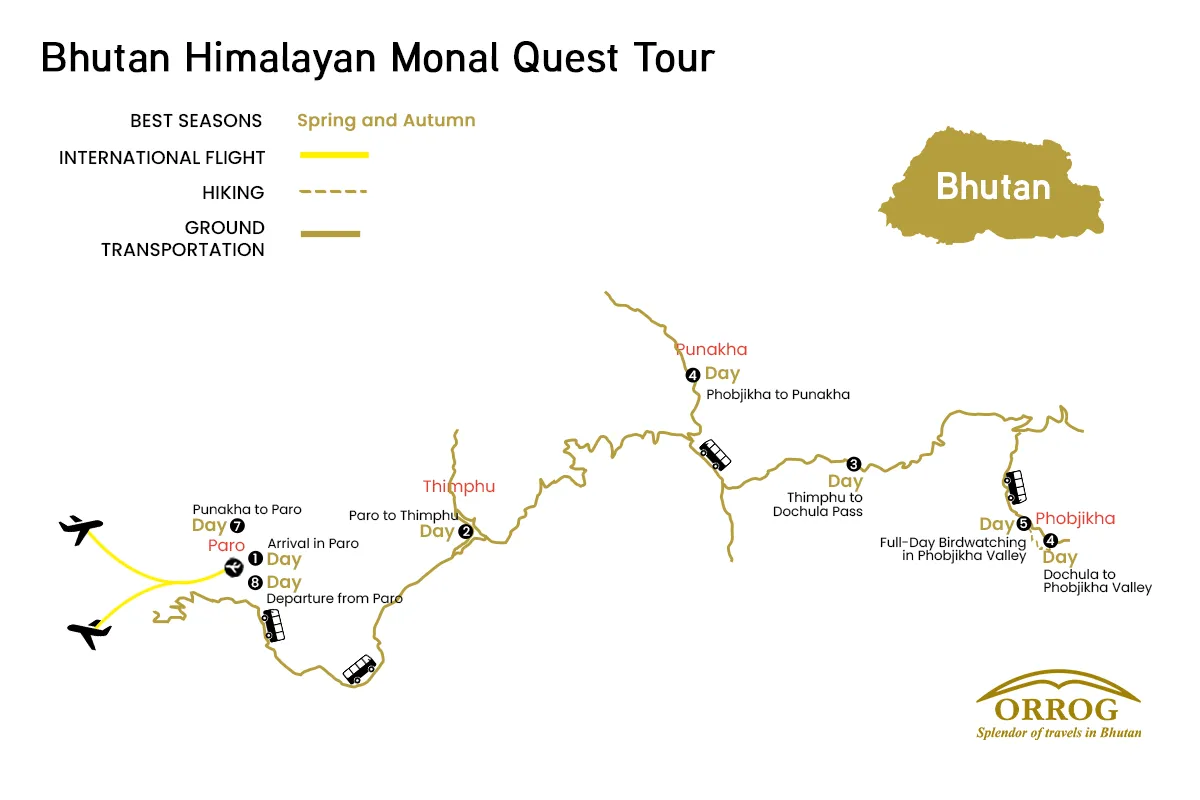
FAQs for Bhutan Himalayan Monal Quest Tour
The Bhutanese Ngultrum is used in Bhutan. All local transactions during the trip will be in BTN.
US Dollars (USD) are generally accepted at larger hotels, souvenir shops, and tour operators, particularly in Paro and Thimphu. However, it’s advisable to convert your currency to BTN for general purchases in rural areas. Other currencies like the Euro or the Pound are not commonly accepted directly.
No, credit or debit cards are not accepted on the trip, as it takes you through remote regions with no banking or electronic payment access. All trip-related payments like accommodation, meals, permits, etc, are paid in advance.
You can exchange foreign currency at the Paro International Airport, at banks, or through licensed money changers in cities like Thimphu and Paro. It's best to exchange enough cash before heading out on the trip.
October to April is the month when Himalayan Monal and other high-altitude birds are most active and can be spotted easily.
No. You can be a beginner to join this trip as well. The perfect guide is there to assist you at every step of this trip
A pair of binoculars, bird field guides, a zoom camera, warm layered clothing, trekking shoes, and rain protection.
Some hiking and walking can be involved, so you should be able to do that.
Yes, you can also see takins, Himalayan serows, and other small mammals, especially in conservation and protected areas.
Yes, solo travelers are welcome. Room-sharing with other solo riders is arranged for them.
A vehicle with first-aid, oxygen, and a mechanic will follow the group. In case of emergencies, the closest medical facilities will be provided.
The national language is Dzongkha, but many Bhutanese also speak English. If you speak English and are worried about communicating with the local people, you will have your guide as a translator.
Yes, all licensed tour guides in Bhutan are required to speak fluent English. Many are also trained in other languages such as German, Japanese, or French. Communication during the trip will be smooth and clear in English.
Most signboards, tourist maps, and information brochures are written in English, especially in tourist destinations like Paro, Thimphu, and trailheads. Directional signs along routes are often labeled in both Dzongkha and English.
No, learning Dzongkha is not at all needed for the trip, but knowing a few basic words like "Kuzu zangpo la" (Hello) or "Kadrinche la" (Thank you) is a good way to interact with the locals.
Language barriers are minimal, as your guide will handle all communication with locals and support staff. Your guide will translate for you during your interaction with the locals.
You need a visa and all necessary permits for your trip. These documents can not be received on the day of your arrival, so they must be processed before coming here. After you book a trip with us, we will manage these papers for you. Your Bhutan visa is arranged by Orrog as part of the package.
The main way to come to Bhutan is through Paro International Airport, which is well-connected to cities like Bangkok, Delhi, Kathmandu, and Singapore. Most people arrive by air, but if you plan to come via road, you can enter through Phuentsholing, located on the southern border with India, which is the most commonly used entry point.
It is recommended to apply for the visa at least 20 days before your planned departure date so that there is enough time for processing your Bhutan visa, finalizing your itinerary, and arranging your guides and transportation. Although visa processing itself is relatively fast once payment is received, early preparation helps avoid delays and ensures availability, especially during peak seasons (spring and autumn).
You don’t require a passport-size photo for the visa, but it is wise to carry at least 2–4 recent passport-sized photographs during your trip. These may be needed for local permits, registration, or when applying for a local SIM card upon arrival in Bhutan.
Yes, you can lengthen your stay in Bhutan either before or after your trip. Bhutan’s tourism model requires visitors to pay a Sustainable Development Fee (SDF) and a daily package cost, so any extra days will involve additional charges. Extensions are a great opportunity to explore cultural sites in Paro, Thimphu, or even add another short trip or day hike.
To greet people, you can greet with locals “Kuzu zangpo la” (Hello) by performing a slight bow. Most common greetings include physical greetings, such as shaking hands less visible, especially in rural areas.
Yes, but remember to seek permission, especially when taking photos of monks, locals, or temples. Please note that clicking photos is not allowed at most religious sites.
Visitors should dress modestly and respectfully. This means:
- Covering shoulders and knees
- Removing hats and sunglasses
- Not wearing shorts or sleeveless tops
This applies to both men and women.
Yes, Bhutanese society is deeply rooted in Buddhism and tradition. Here are some key taboos:
- Do not point your feet at people or sacred objects
- Never touch anyone on the head, as it is considered sacred
- Walk clockwise around temples, stupas, and religious monuments
- Avoid public displays of affection
While gifts are not expected, they may be accepted graciously if given with respect. It is advisable to consult with the guide before giving out anything.
Yes, Bhutan requires full tour payment in advance before your visa can be processed and issued. The government of Bhutan regulates this policy to ensure that all travel arrangements are confirmed through a licensed Bhutanese tour operator. We are a licensed tour operator that ensures you have everything you need for a trouble-free trip.
Any personal expenses are not covered in the package like:
- Tips for your guide and other staff
- Bottled drinks and snacks(personal expense)
- Souvenirs or local crafts
Credit cards are easily accepted in major cities like Paro and Thimphu. But in remote areas, you may not have access to a card or an ATM. So, it is best to carry some cash before heading for the trip.
Tipping is not mandatory, but it is a widely appreciated gesture and a customary way to show gratitude for good service. The tipping guideline would be to give USD 5-10 per day as a tip for the guides and other staff.
Bhutan typically uses Type C, Type D, and Type G electrical outlets. Standard safe voltage is 230V and frequency is 50Hz; therefore, ensure that your equipment is compatible with this voltage.
Indeed, it is highly advised to take along a universal travel adapter, particularly one to fit a variety of types of plugs, because plugs can be different in a hotel or a guesthouse.
Bhutan follows Bhutan Time (BTT), which is UTC/GMT +6 hours. This time zone remains consistent throughout the year.
No, Bhutan does not observe daylight saving time. The country maintains the same time year-round.
Bhutan is 30 minutes ahead of India. For example, 12:00 PM in India is 12:30 PM in Bhutan.
Paro International Airport is the only international airport in Bhutan. It is well connected by flights from cities like Bangkok, Delhi, Kathmandu, and Singapore.
Yes, airport pick-up and drop-off are included in the package. We will have your guide and driver meet you at the airport and transport you to your hotel.
While Bhutan's roads are mostly paved, some parts are narrow, winding, and occasionally affected by weather. However, we ensure your travel is safe, well-maintained, and driven by an experienced professional throughout the journey.
Once you arrive in Paro, we will arrange private ground transportation to the starting point as we pass through lush valleys and traditional villages. So, you don’t have to worry about any transportation services.
Yes, it is very safe to travel even with children in Bhutan. Roads are well-maintained, and the pace of travel is generally relaxed and child-friendly.
We will usually travel in comfortable, private vehicles with experienced drivers. All ground transportation is included in your package.
Yes, souvenirs can be bought in Paro or Thimphu before or after the trip.
Some popular souvenirs include hand-woven textiles (kira and gho fabric), prayer flags, thangka (religious scroll) paintings, handmade paper products, traditional masks, and Buddhist artifacts.
You can do some gentle bargaining in local street markets. However, in government-run shops and fixed-price stores, prices are usually non-negotiable.
Yes, you can easily purchase a SIM card upon arrival in Bhutan. We will assist you with the process, and you'll need a passport copy and a passport-sized photo.
No, internet access is not available during the trip. However, Wi-Fi is available in hotels in Paro and Thimphu before and after the trip.
Since the weather can be unpredictable and temperatures can vary drastically, layered clothing is essential. You should pack:
- Base layers (thermal tops and bottoms)
- Insulating layers like fleece or down jackets
- Waterproof and windproof outer layers
- Warm hats, gloves, and neck gaiters for freezing conditions
- Moisture-wicking socks and weatherproof trekking boots
Nighttime temperatures can be extremely cold, especially at high-altitude places. So you need to have enough clothing to keep you warm.
The weather is clear with mild daytime temperatures during spring and autumn.
Reviews & Ratings
-
Guarantee -
Thimphu,Bhutan -
975+17160228
Ready to Explore Bhutan?
Start your journey today and discover the magic of Bhutan with our expert guides and carefully crafted tours.
Book This Trip
-
No booking or credit card fees -
Best price guarantee -
Full customize trip
Ask a Question
Feel free to ask us anything about this tour. A travel expert will then get back to you as soon as possible
Ready to Explore Bhutan?
Start your journey today and discover the magic of Bhutan with our expert guides and carefully crafted tours.
